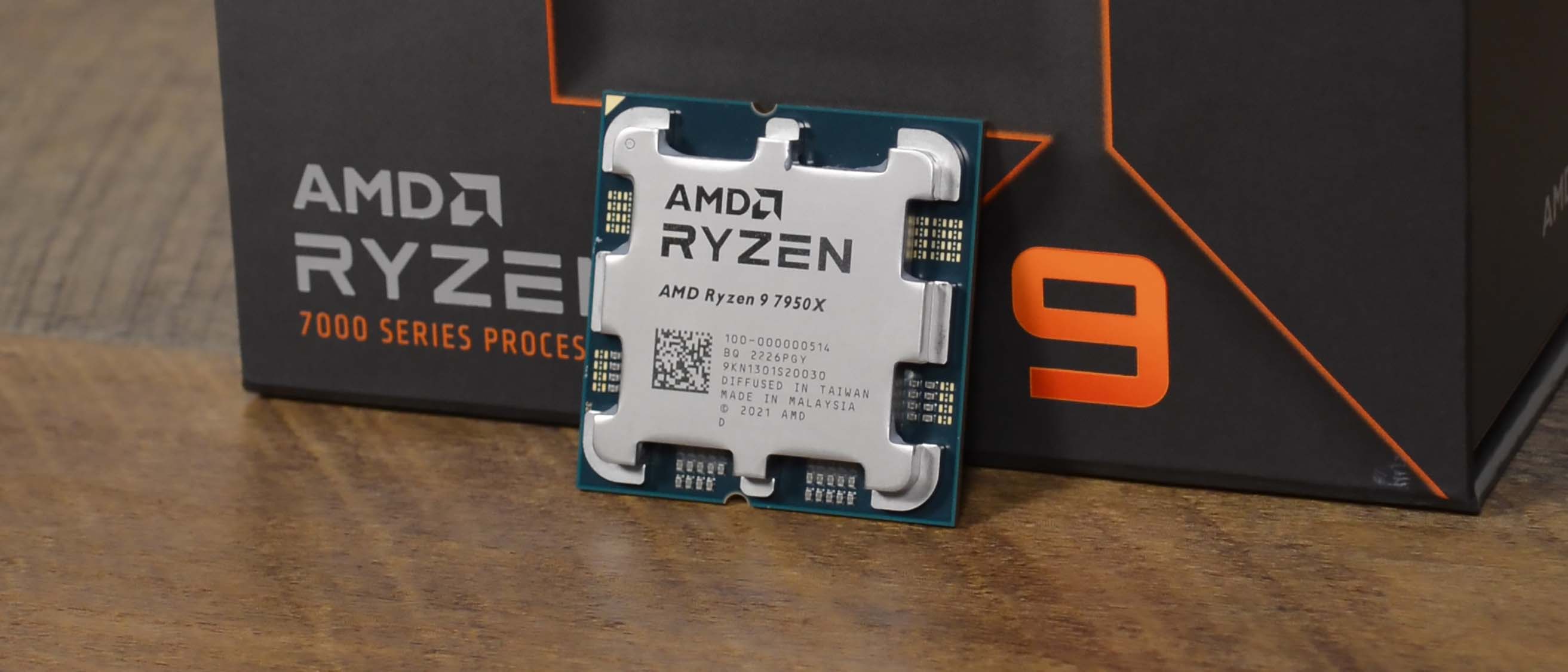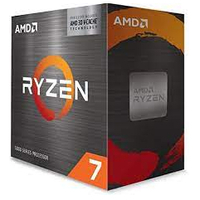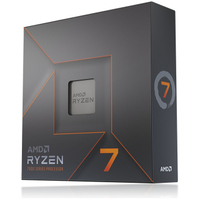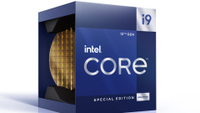TechRadar Verdict
The AMD Ryzen 9 7950X is a massive jump over its predecessor and comes in at a lower cost, but that's off set by the new hardware you'll need just to use it. Even so, at the moment, it is unquestionably the best processor on the market, so Intel Raptor Lake has a very high bar to clear.
Pros
- +
Best-in-class performance
- +
Lower retail price than predecessor
- +
Compatible with AM4 cooling solution
- +
Excellent energy efficiency
Cons
- -
Requires new AM5 motherboard
- -
Not compatible with DDR4 RAM
- -
AMD Ryzen 7 7700X offers better value
- -
No 3D-Vcache
Why you can trust TechRadar
AMD Ryzen 9 7950X: Two minute review
The AMD Ryzen 9 7950X is finally here, and it's hard to argue that this isn't the best consumer processor ever made.
This is a big claim, and with Intel Raptor Lake quickly approaching, we'll know soon enough if Team Blue is going to be able to counter a very resurgent AMD, but we are not going to sugar coat it: AMD has set the bar very high with the Ryzen 9 7950X, and Intel is going to be hard pressed to even keep pace with what this processor brings to the game.
To start, AMD used TSMC's 5nm node to produce the new Zen 4 Ryzen 7000 series chips, and the Ryzen 9 7950X is a 16-core, 32-thread beast with 80MB cache memory and a boost clock within sight of 6.0GHz.
What's more, unlike Intel's turn to hybrid core architecture, all 16 of the Ryzen 9 7950X's cores are full performance cores, so while Intel might be using the Arm-pioneered performance core-efficiency core pairing, the Ryzen 9 7950X simply runs roughshod through tasks, beating out just about every other competing chip out there, across every category.
In particular, the Ryzen 9 7950X is easily the most significant gen-on-gen performance leap in as long as we can remember. Intel Alder Lake impressed us as much as it did because it was coming after the rather 'Meh' 11th-gen Rocket Lake chips, which were barely enough of an improvement to warrant the refresh in the first place.
The AMD Ryzen 5000-series processors were some of the best processors ever produced, top to bottom, and the Ryzen 9 7950X feels like as big a jump as Intel Alder Lake was, but it is instead making the leap from a mountain top rather than the boggy plateau of Rocket Lake and so it lands significantly farther out. It's honestly like AMD skipped the release of an entire processor generation and we're getting this chip after the one we didn't even realize that we didn't get was skipped.
It may be too soon to tell if AMD has finally caught up to Intel post-Alder Lake, but the Ryzen 9 7950X, along with the AMD Ryzen 7 7700X, is one hell of an opening salvo to kick off the next generation of processors.
AMD Ryzen 9 7950X: Price & availability
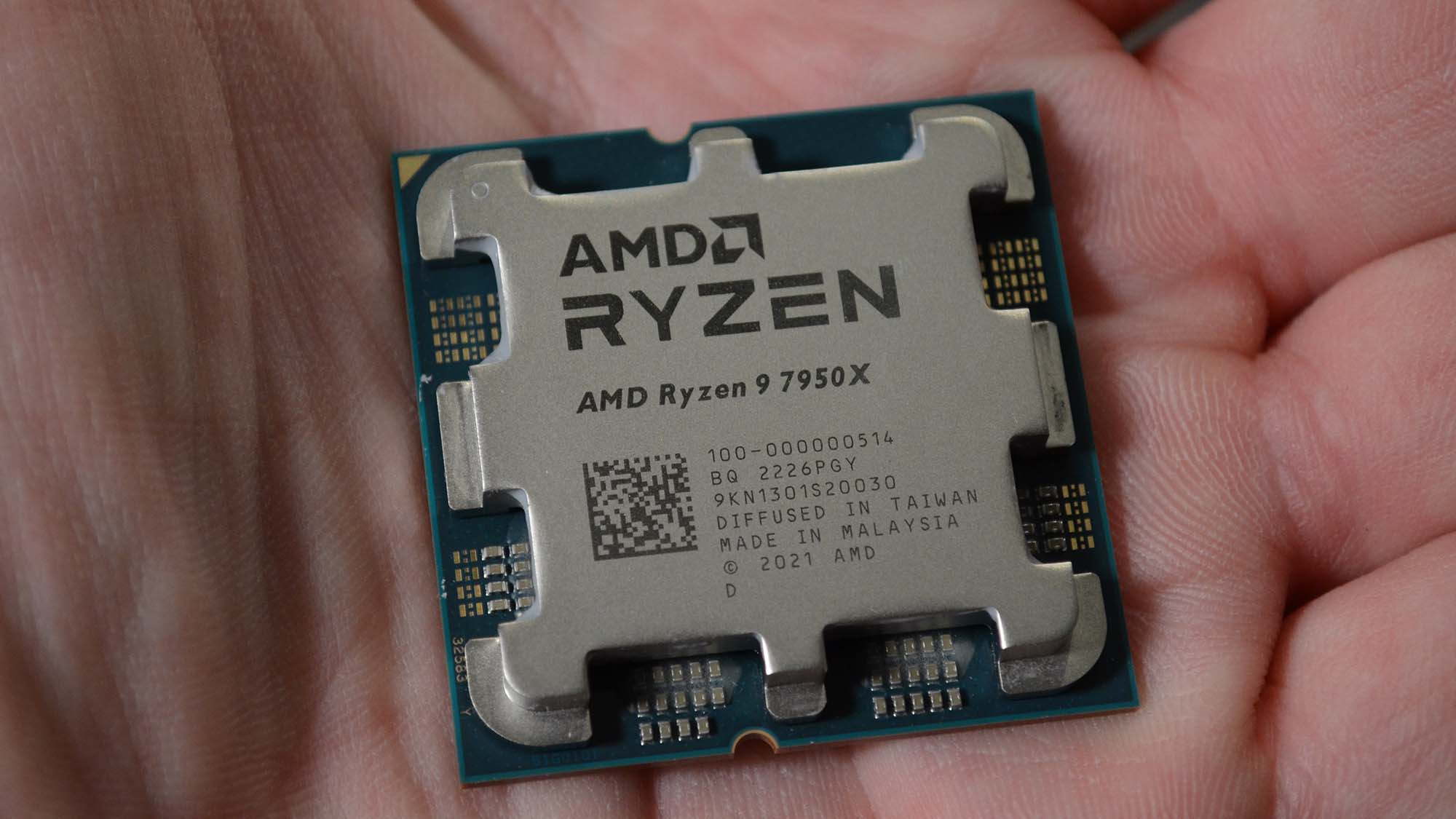
- How much does it cost? MSRP $699 (about £600 / AU$1,000)
- When is it available? September 27, 2022
- Where can you get it? Available in the US (UK and Australia dates forthcoming)
The AMD Ryzen 9 7950X is available from September 27, 2022, with a US MSRP of $699 (about £600 / AU$1,000). AMD has not listed UK or Australian retail pricing, and we've reached out to AMD for clarification on when the new Ryzen 7000 processors will go on sale in those regions.
The Ryzen 9 7950X's price is $100 less than the Ryzen 9 5950X's, which is fantastic, especially with recent concerns about inflation. This also mildly offset's the cost of the upgrade to the new Ryzen 7000's. This is also $110 more expensive than the Intel Core i9-12900K, which has a US MSRP of $589 (about £500, AU$850). Is the Ryzen 9 7950X worth the premium price over the Core i9-12900K? We definitely think it is, but there's no getting around the fact that this is still an enthusiast chip, and it is priced accordingly.
What's more, unlike the Core i9-12900K, the Ryzen 9 7950X isn't compatible with DDR4, so not only will you need a new motherboard, you will need to buy expensive new RAM. It also has a much higher TDP, so if you were bumping up against the limits of your power supply, odds are good that you'll need to buy one of those, too.
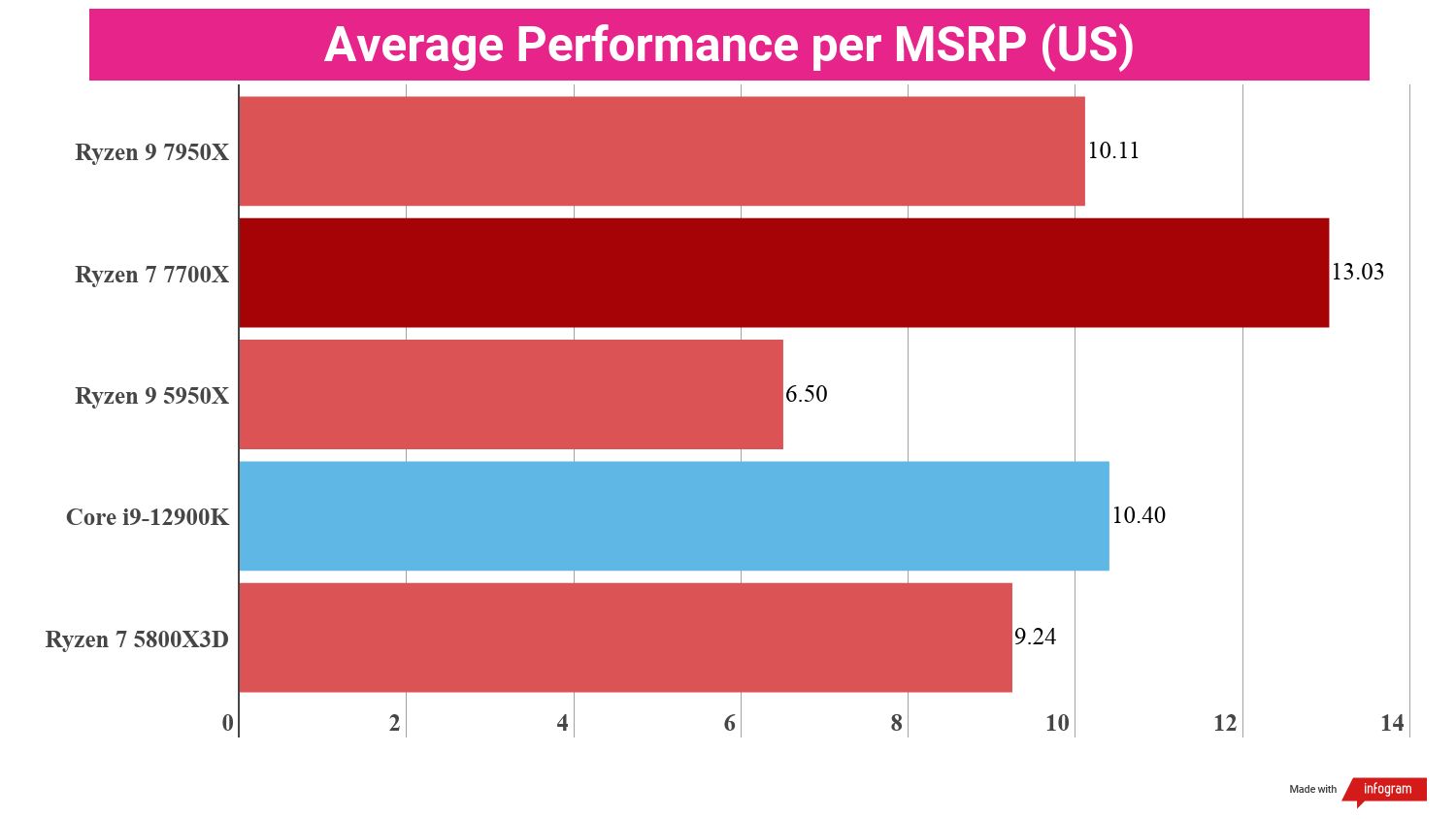
In a lot of ways, other than your graphics card, you really are talking about a substantial investment to upgrade to the AMD Ryzen 9 7950X. You might be better off buying one of the best gaming PCs preloaded with a Ryzen 9 7950X, depending on how much you end up needing to replace in your rig.
Still, this isn't unexpected or unreasonable, considering the age of the AM4 socket and how Intel has similarly shifted to the LGA 1700 socket for its Intel Alder Lake chips. On the plus side, if you had an AM4 cooling solution, you can still use it with the Ryzen 9 7950X.
All that said, expect to spend a good deal more than $699 for this upgrade. Given the performance improvements with the Ryzen 9 7950X, we definitely think you are getting way more value for your money than you would with the Ryzen 9 5950X it replaces.
The AMD Ryzen 9 7950X might not be as good a "value" proposition as the Ryzen 7 7700X, but it is without a doubt a much more compelling processor than its predecessor. It comes in slightly behind the Core i9-12900K on price, but with rumors swirling about the increased prices of the Intel Raptor Lake processors due out soon, it's more likely than not that the Ryzen 9 7950X will only look like a better value as time goes on.
- Value: 4 / 5
AMD Ryzen 9 7950X: Chipset & features
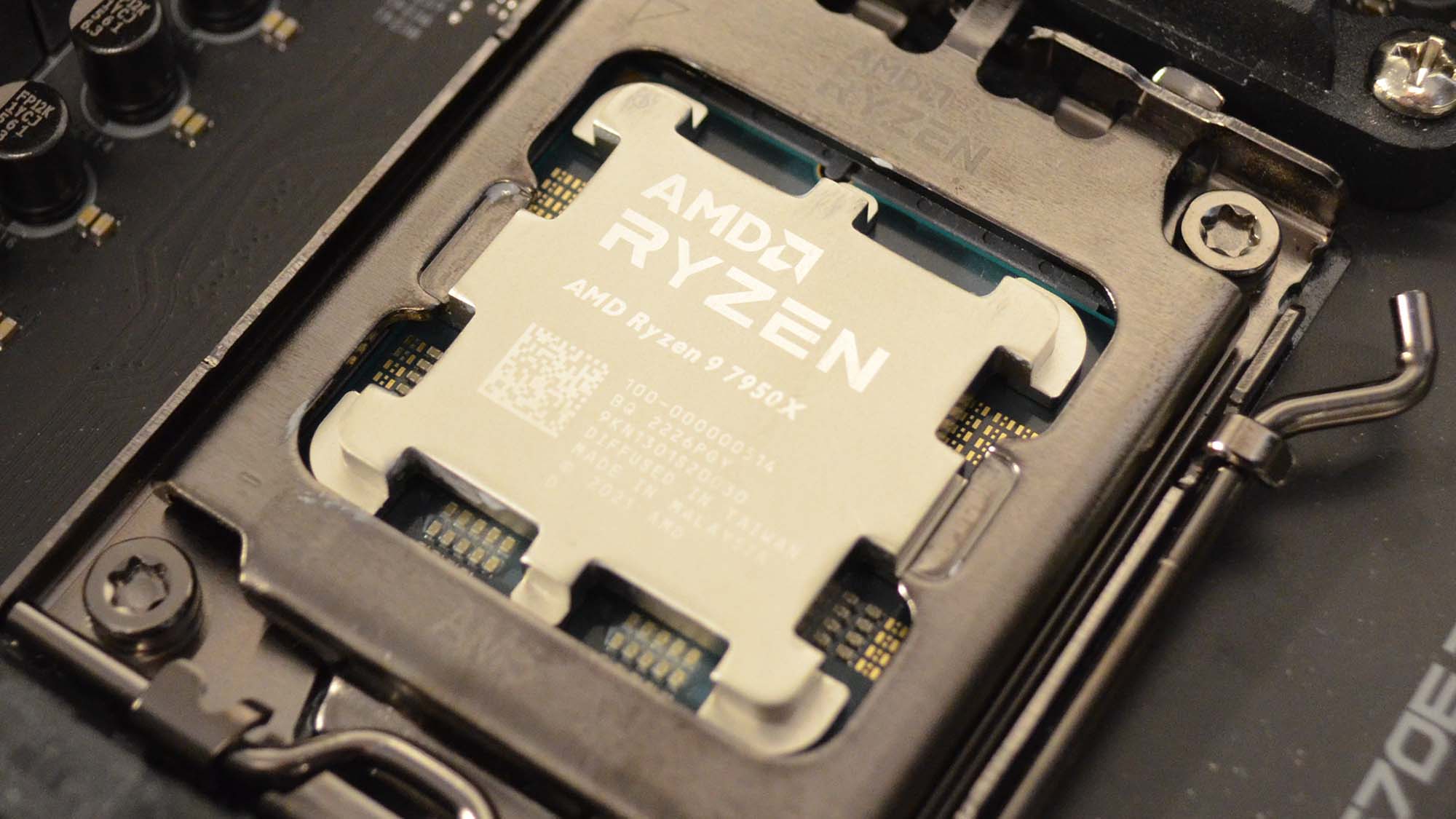
- AMD finally moves on from AM4
- PCIe 5.0 and DDR5 come to Ryzen PCs
- Integrated dual-core RDNA 2 GPU
Process: 5nm
Socket: AM5
Cores: 16
Threads: 32
Base frequency: 4.5GHz
Boost frequency: 5.7GHz
L3 cache: 80MB
TDP: 170W
PCIe: 5.0 x 24
Max RAM: 128GB Dual-Channel DDR5
Unlocked: Yes
Integrated Graphics: 2-core RDNA 2 GPU
The AMD Ryzen 7 7700X is a 16-core, 32-thread beast of a CPU, fabbed on a 5nm FinFET process from TSMC that has been years in the making, but which seems to have been well worth the wait.
Most notably for the Ryzen 9 7950X, AMD 7000-series processors can now use both PCIe 5.0 and DDR5 RAM (the latter isn't optional), which is something that Intel has been able to utilize for nearly a year now since the release of Intel Alder Lake in November 2021. Unfortunately for Intel, just having a platform for these two technologies doesn't mean that consumers will be able to take advantage of them, and Intel's continued support of DDR4 meant that many customers likely didn't even take advantage of one of Intel's most exclusive features over the last year.
With this processor release, along with the AMD Ryzen 9 7900X, Ryzen 7 7700X, and Ryzen 5 7600X, Intel's year-long exclusive compatibility with next-gen memory, storage, and add-in cards has come to an end, and it was barely able to take advantage of its first-mover status. You'll still need to get an AM5 motherboard for the Ryzen 9 7950X, but you an still use the same cooler you had on an AM4 board with the new AM5s. It might not be the biggest savings, but any bit helps when doing a build.
Moving on to the actual chip itself, its 16 full-performance cores have a base clock of 4.5 GHz, with a boost clock of 5.7 GHz, which is nearly a full 40% faster base clock compared to the Core i9-12900K's performance cores, with a 12% faster boost clock as well.
Compared to the Ryzen 9 5950X, there is a similar increase in core speeds, with the 7950X's base clock running about 32% faster than the 5950X's, while it's boost clock runs about 16% faster than the 5950X's.
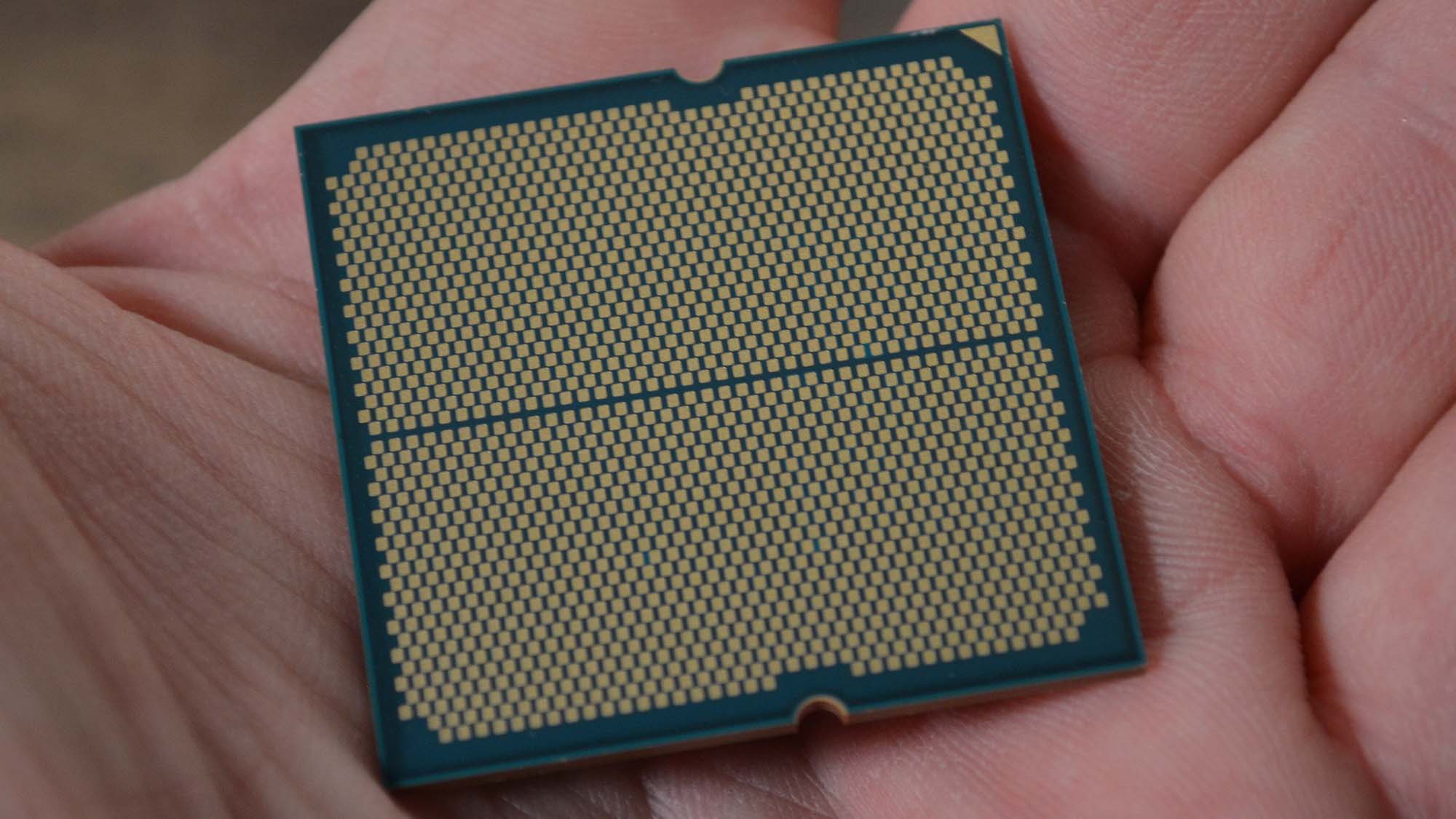
There is also support for Intel's AVX-512 instruction set, which is designed by Intel for high-performance computing and floating-point-compute-heavy applications like video encoding, financial services, and simulation modeling.
Most interesting to us though is that it is also very useful when doing ray tracing calculations. During the Q&A session following the taping of the AMD Ryzen 7000 announcement on August 27, we asked AMD Corporate Vice President and GM for desktop PCs, David McAfee, and AMD's Chief Technology Officer and Executive Vice President of Technology and Engineering, Mark Papermaster, if the inclusion of the AVX-512 instruction set on the Ryzen 7000-series would create an opportunity for smart synergies between AMD's 7000-series processors and its Radeon graphics cards when it came to ray tracing performance.
"AI is finding its way into every application and that does include ray tracing, so it is important to just bring that efficiency [from the AVX-512 instruction set] into the CPU," Papermaster told us. "The CPU is still the vastly dominating engine in the industry where inferencing is practiced, such as where you're sharpening up images, and certainly those play into a whole range of applications."
"As to whether we'll see hybrid ray-tracing across AVX-512-based CPUs and Radeon GPUs," McAfee added with a laugh, "I can't comment on that right now."
Intel, meanwhile has killed off its support for AVX-512 in Intel Alder Lake and Raptor Lake (it said that since its efficiency cores couldn't use AVX-512, misuse of the instruction set could lead to errors so Intel dropped it from Alder Lake and Raptor Lake.
This could give the Ryzen 9 7950X a key advantage in some select applications over the 13th-generation Core i9-13900K, especially when it comes to content creation and scientific research. Whether we'll get any hybrid ray tracing solutions from pairing an AMD CPU and GPU togther is an open question, but the instruction set appears to already be paying dividends in at least one of our performance benchmarks.
The Ryzen 9 7950X also has a built in dual-core RDNA 2 GPU, so while you're hunting down a new graphics card for your build, you can still get by with the processor's integrated GPU while you wait for some cheap graphics card deals to finally come around.
- Features: 5 / 5
AMD Ryzen 9 7950X: Performance
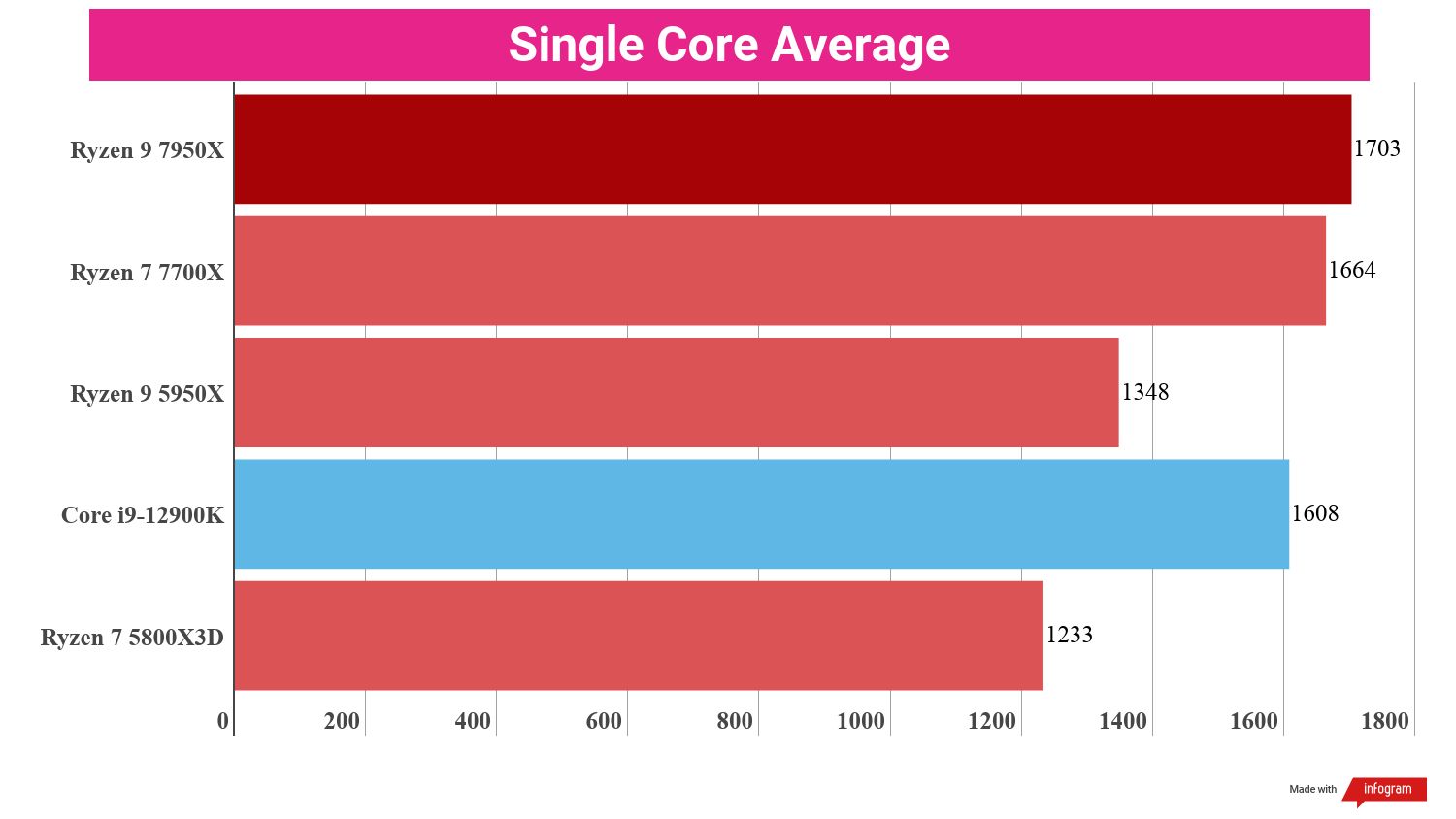
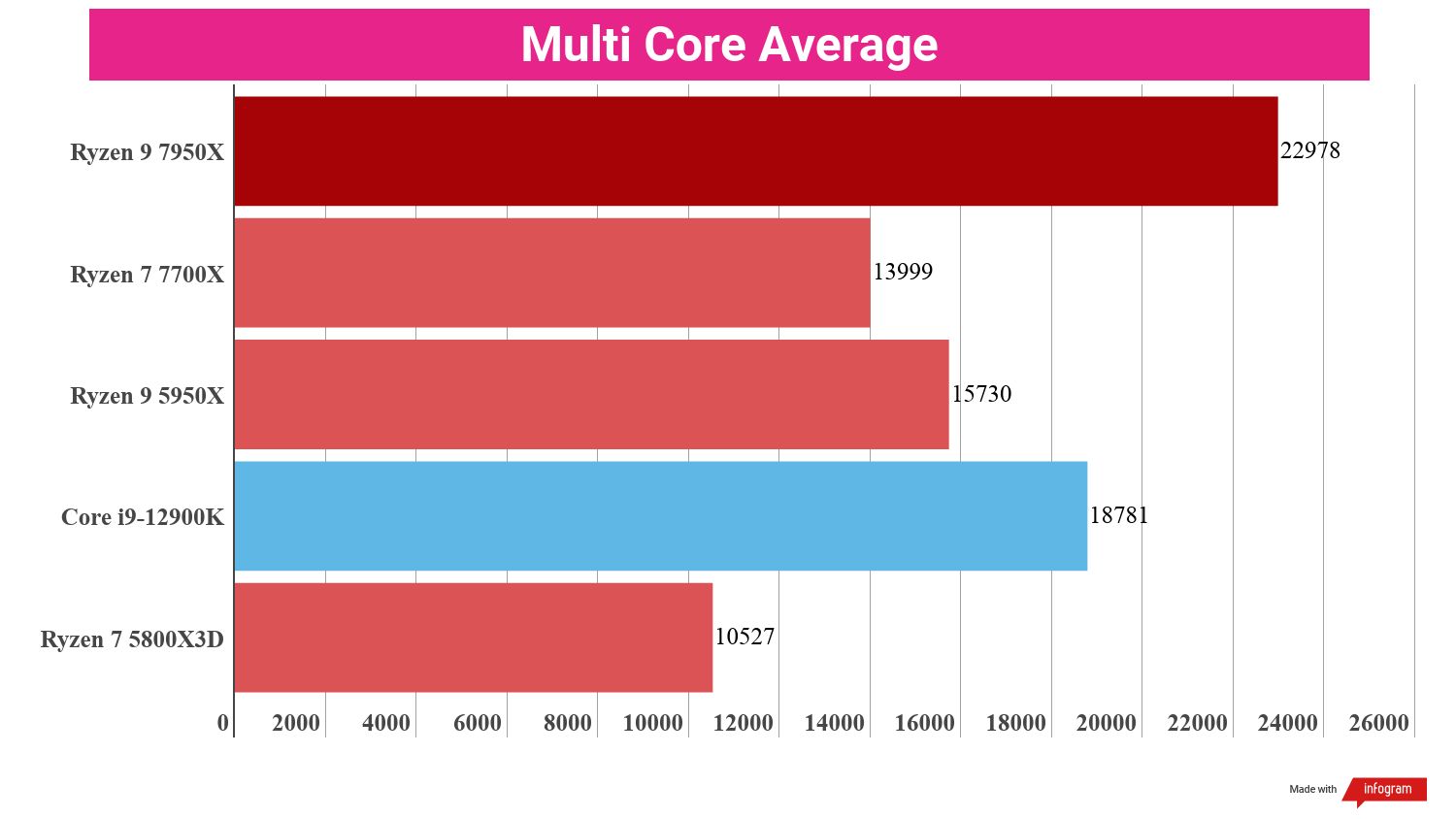
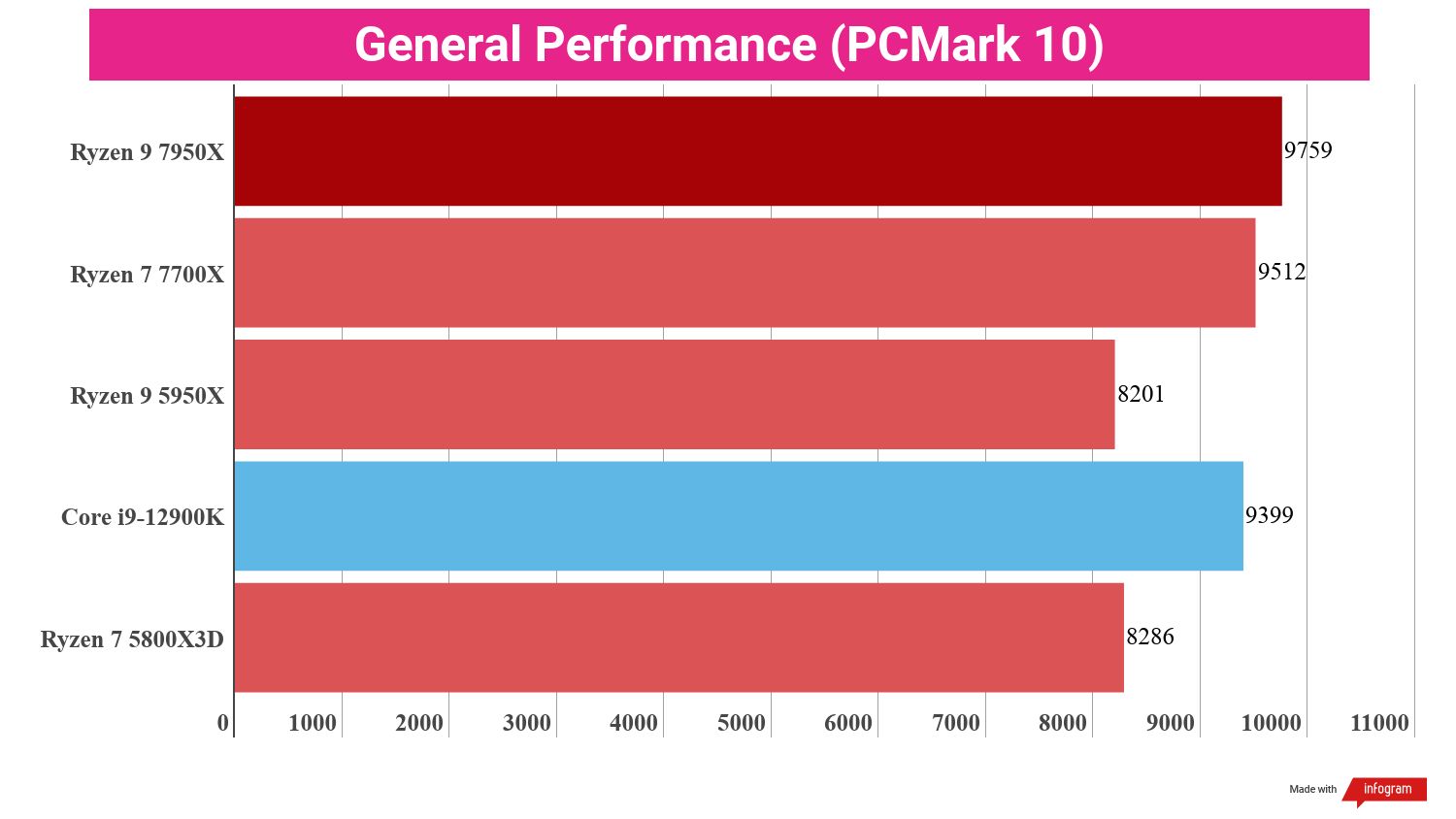
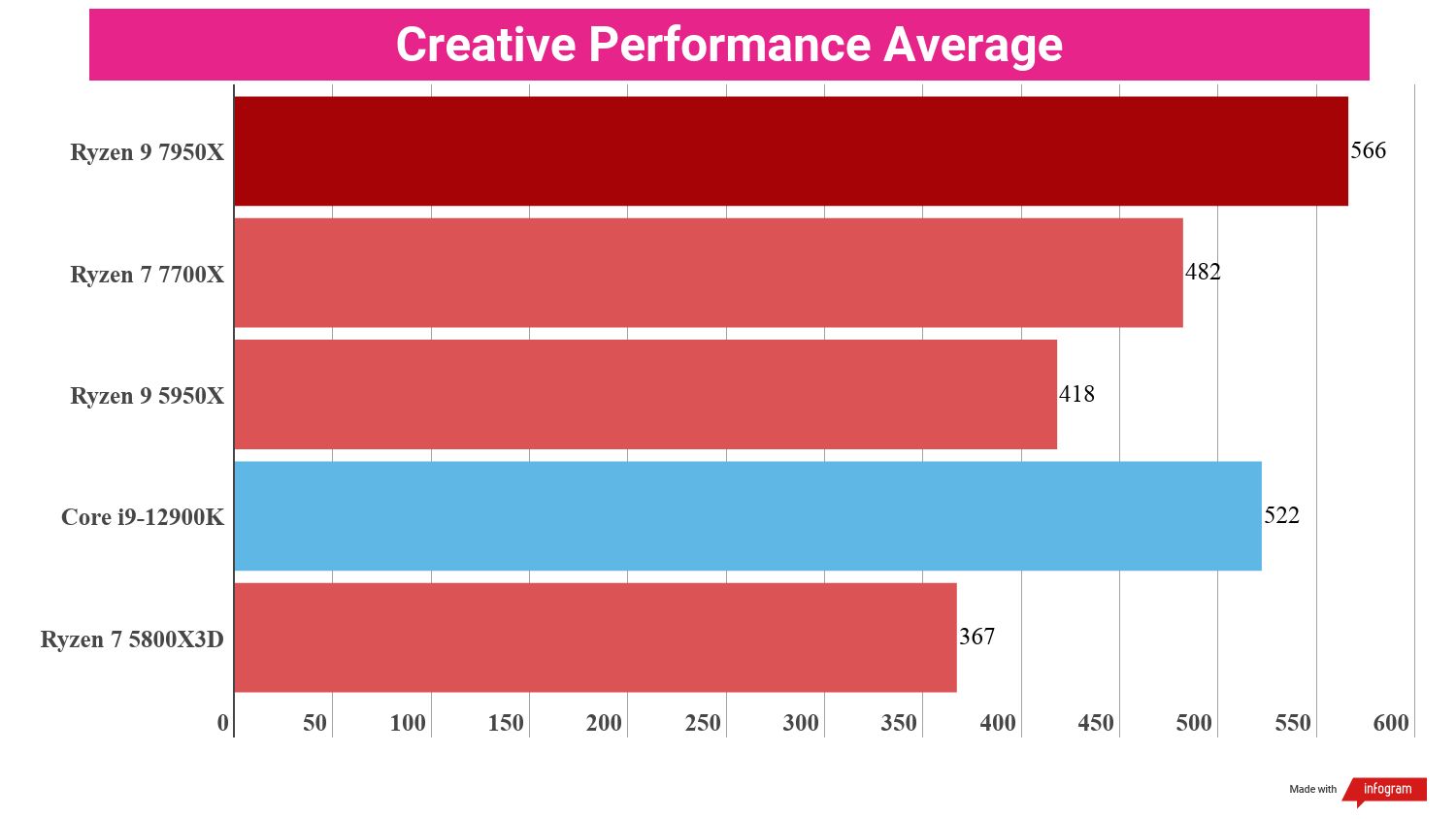
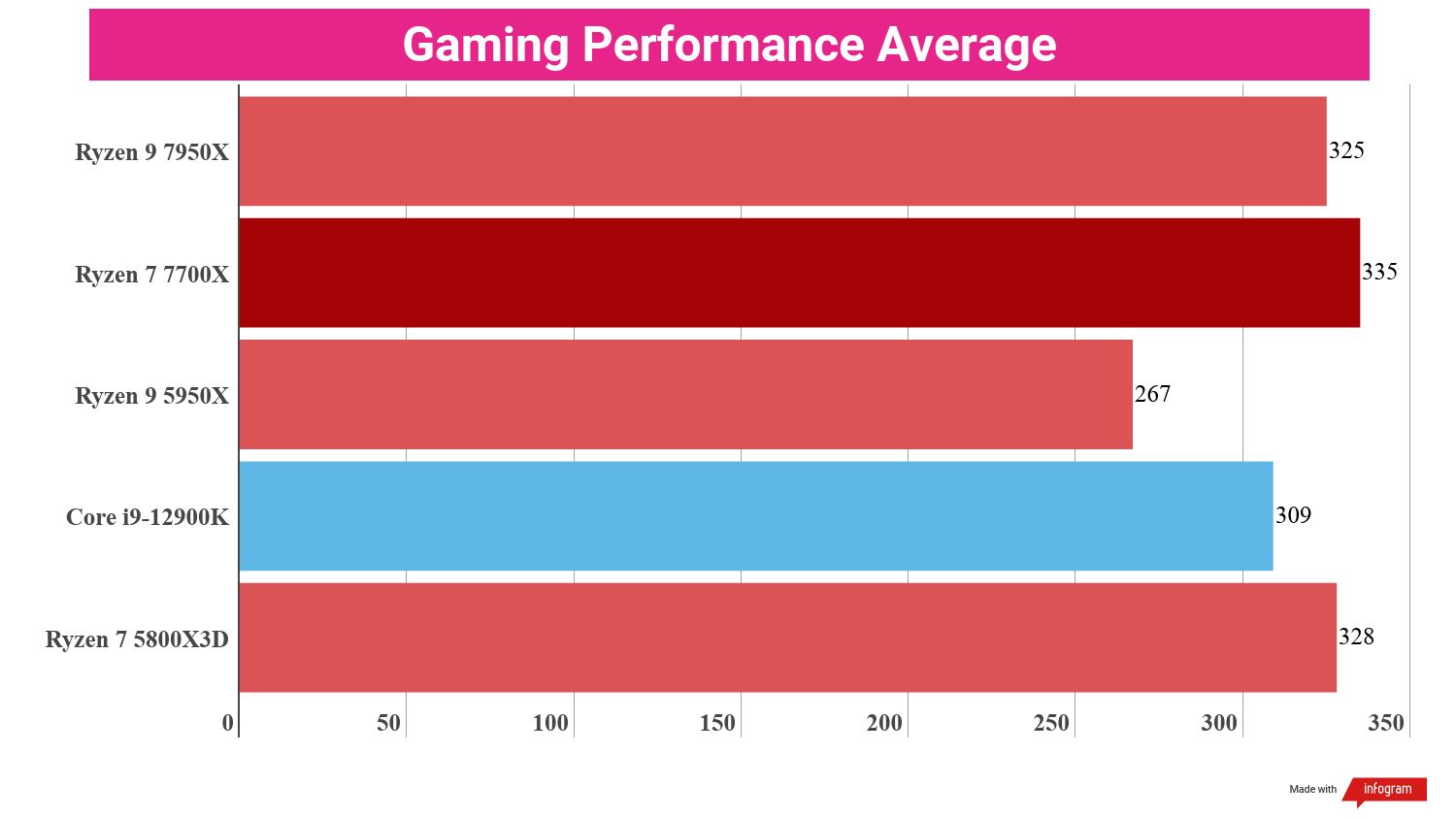
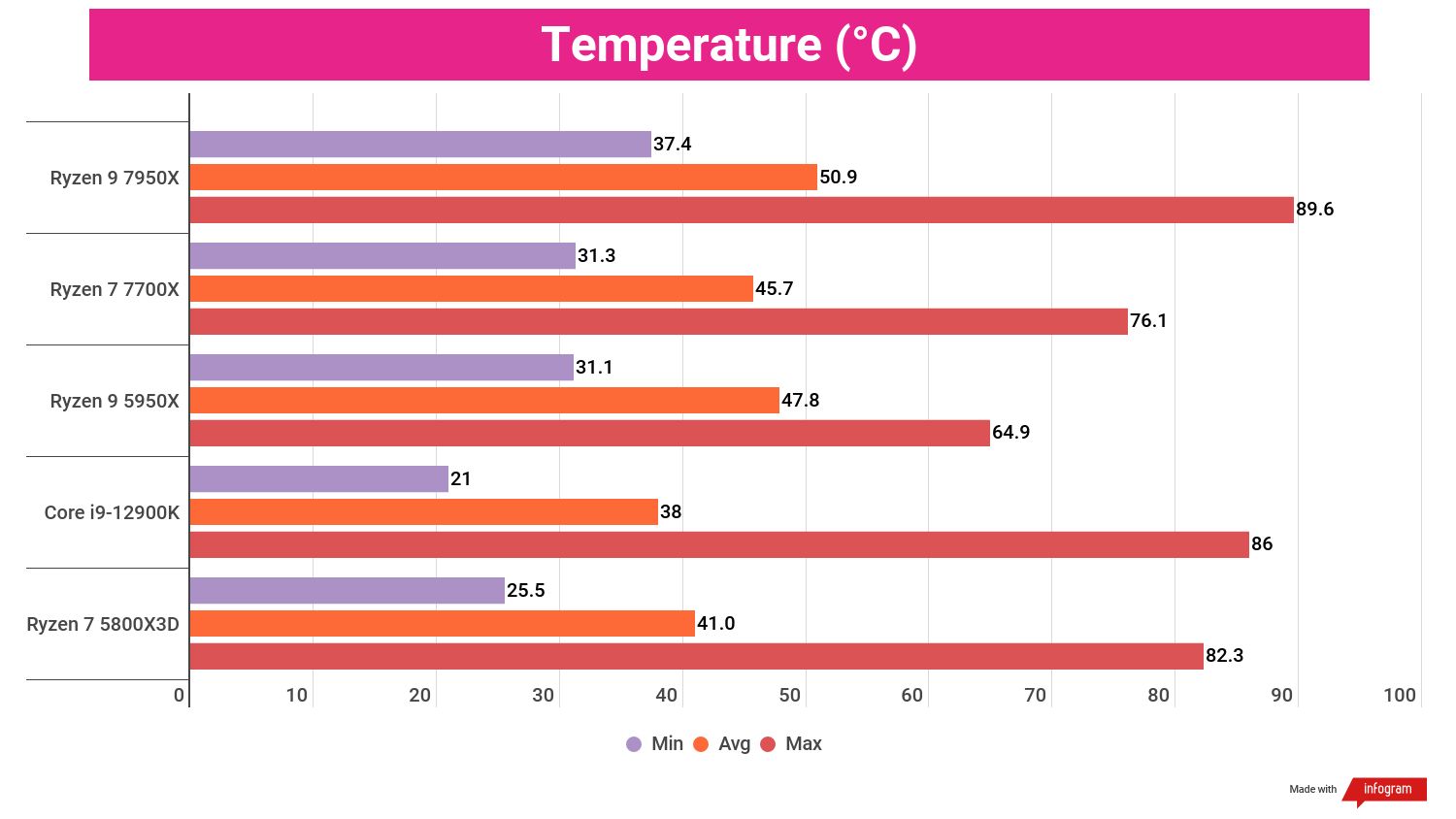
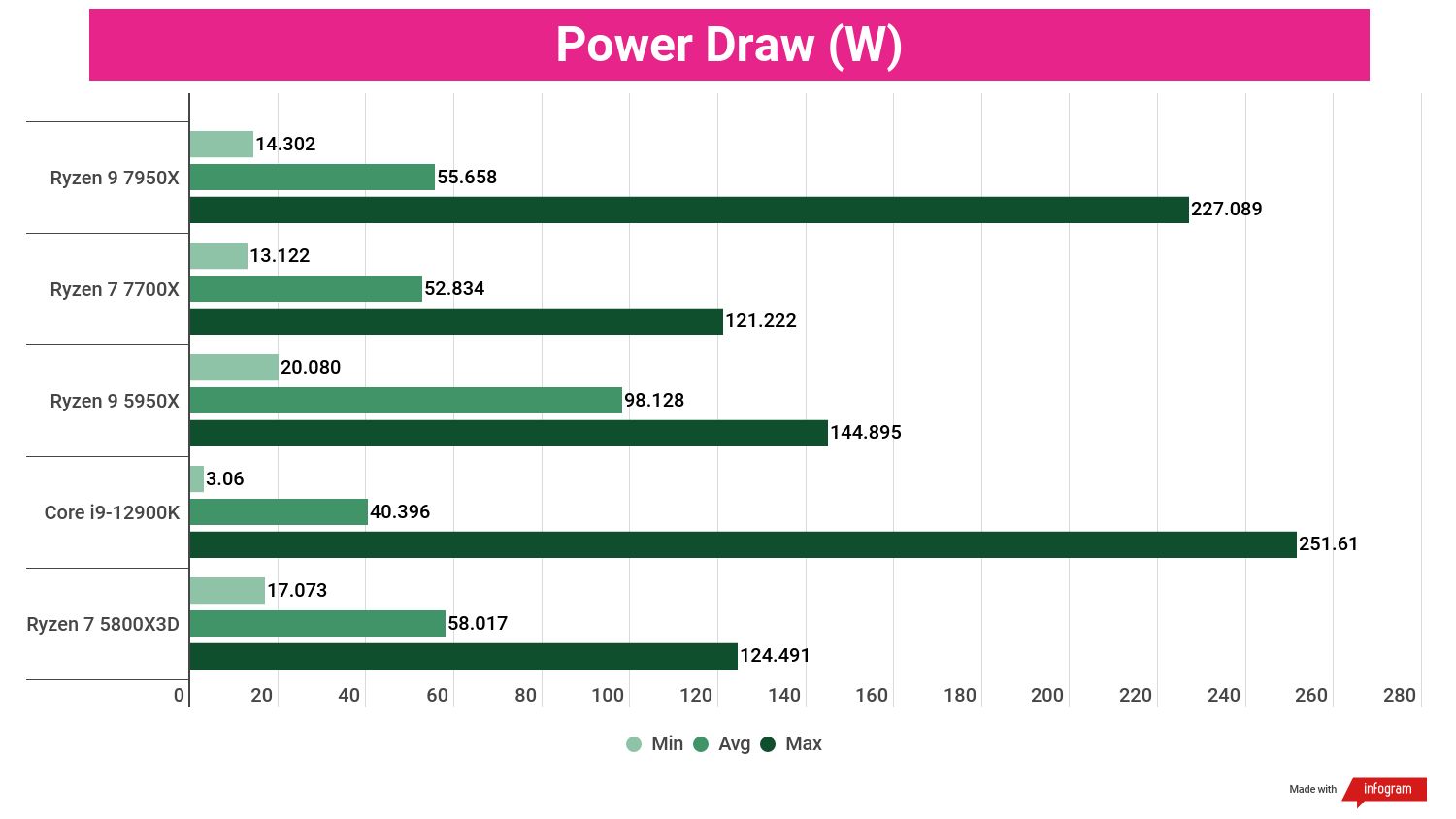
- Best-in-class performance
- Runs circles around the Ryzen 9 5950X
- Fantastic energy efficiency
The AMD Ryzen 9 7950X is AMD's flagship enthusiast processor and boy howdy does it deliver. We are talking best in class performance across the board, from raw single and multi core performance – including some jaw-dropping scores for a consumer processor – to content creation and gaming.
If there is a critique of the Ryzen 9 7950X, its that it really is too powerful for most people, and so this is a processor best reserved for professionals, hardcore gamers, and PC enthusiasts who want to be at the cutting edge of tech.
In a lot of ways, comparing this processor to the Intel Core i9-12900K also isn't totally fair, as this chip's real rival is the forthcoming Intel Core i9-13900K, which should be released sometime in the next month or so. Until we can square the Ryzen 9 7950X against Intel's flagship Raptor Lake processor, it's too soon to say that the Ryzen 9 7950X is the best processor of the year, but it is without question the best AMD processor ever made for the consumer market, and it's not close.
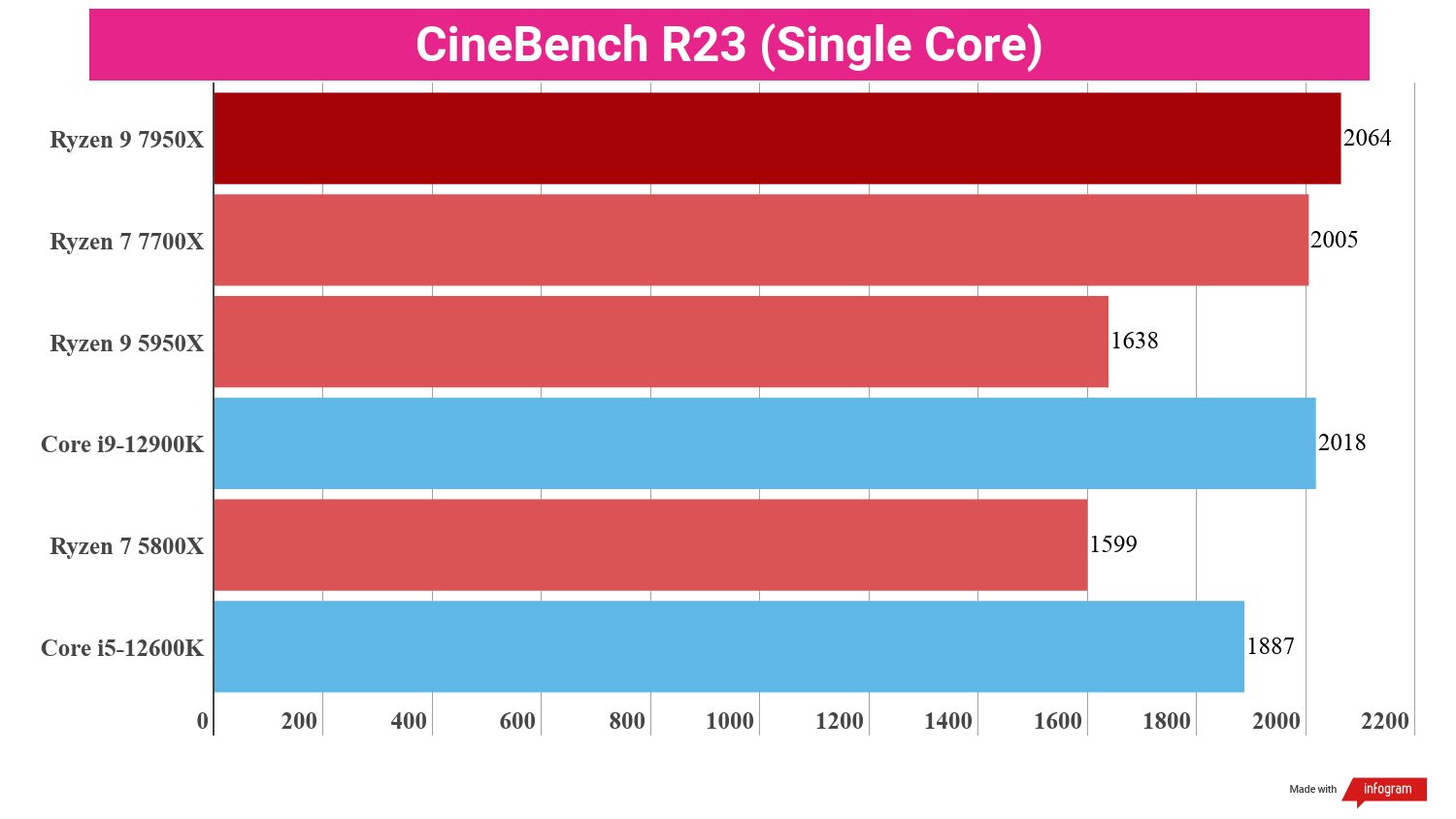
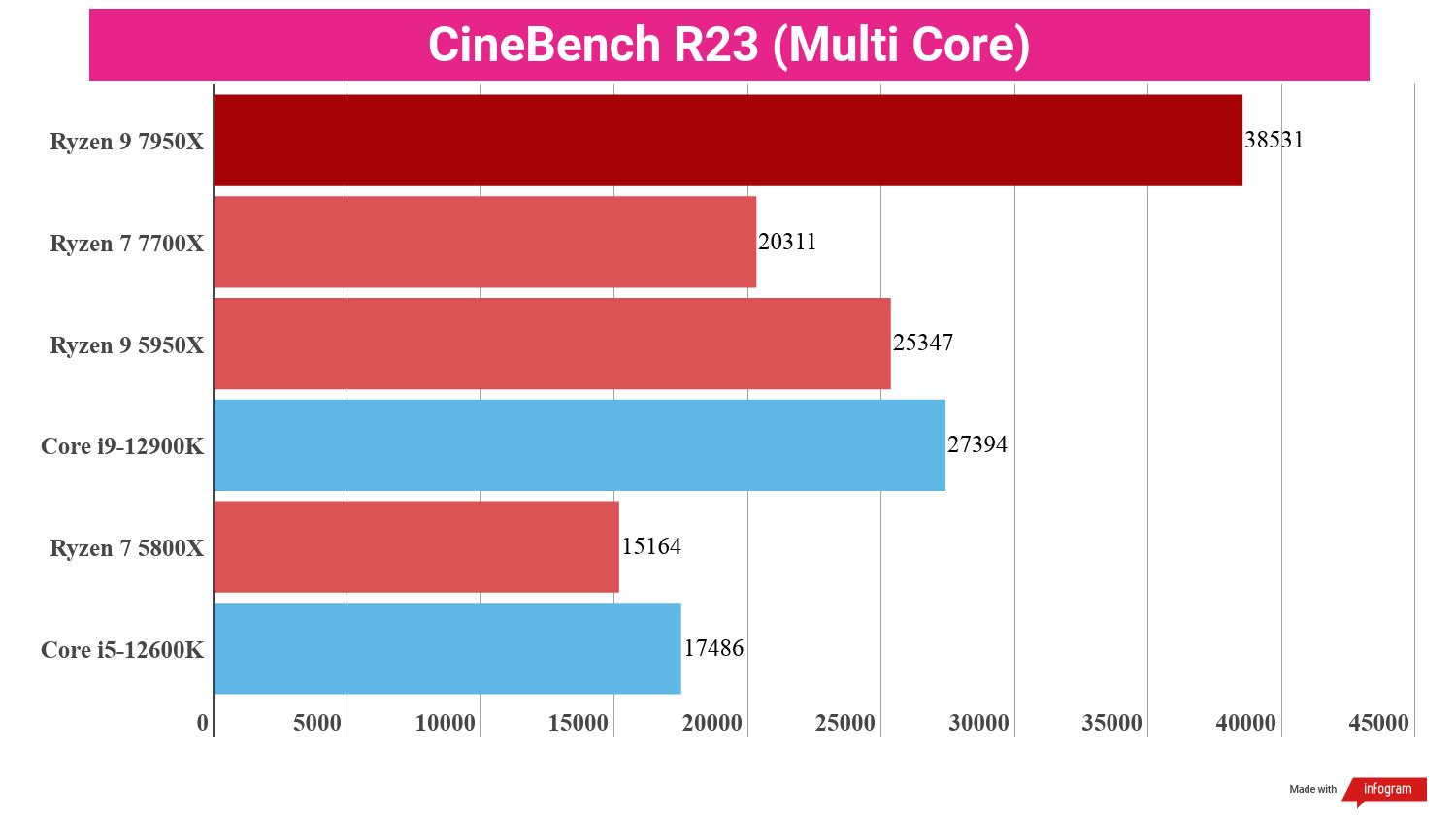
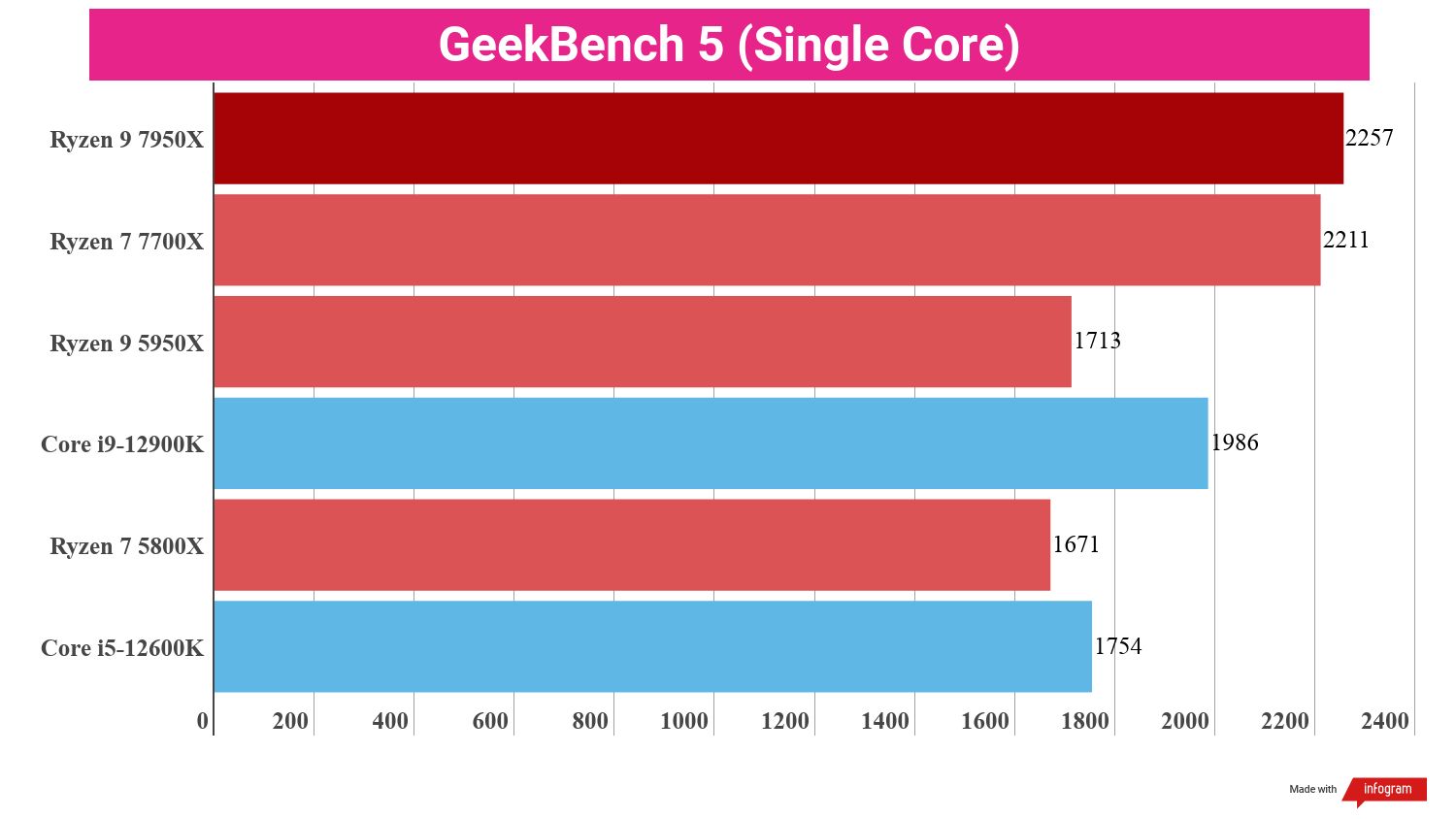
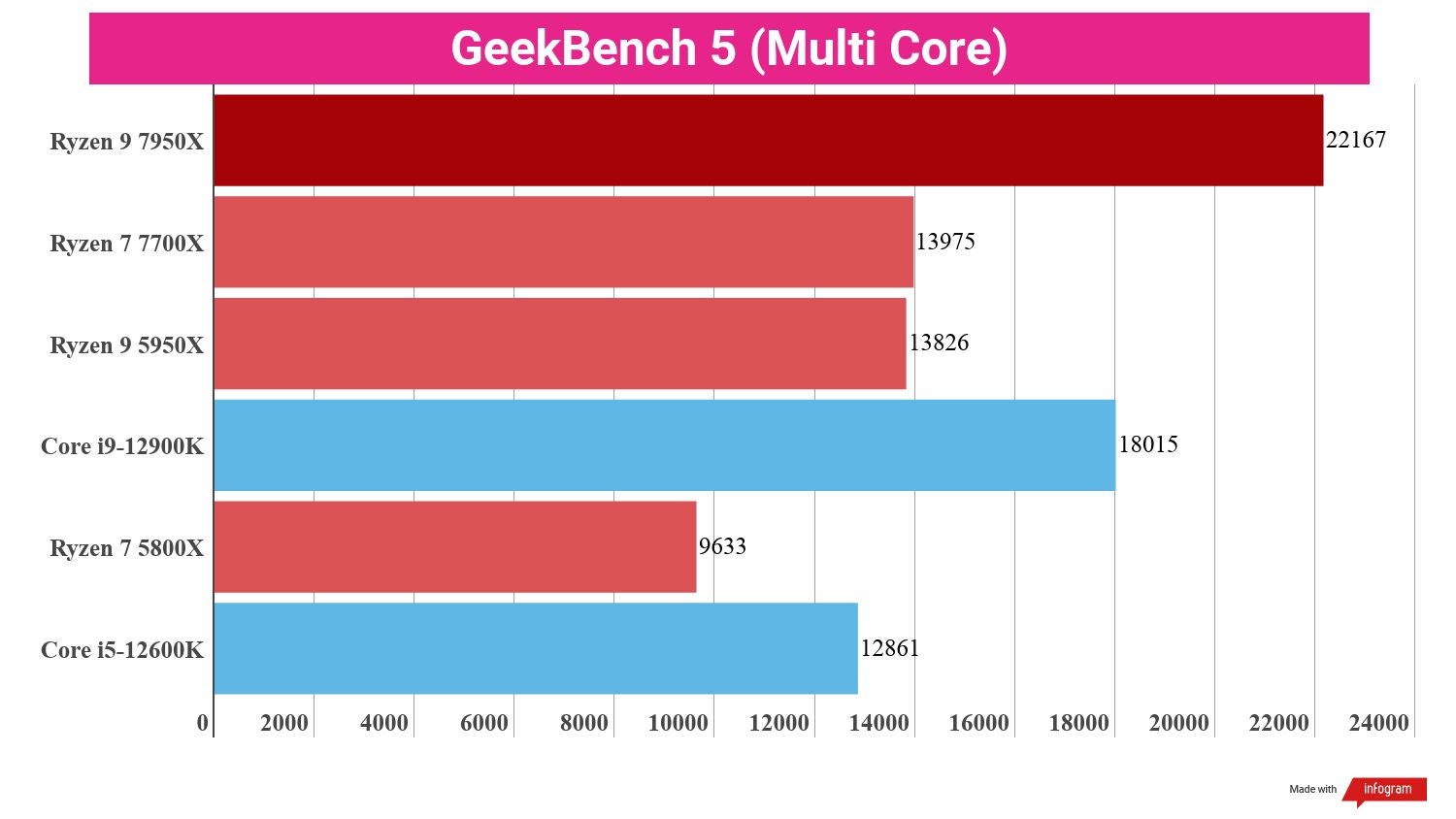
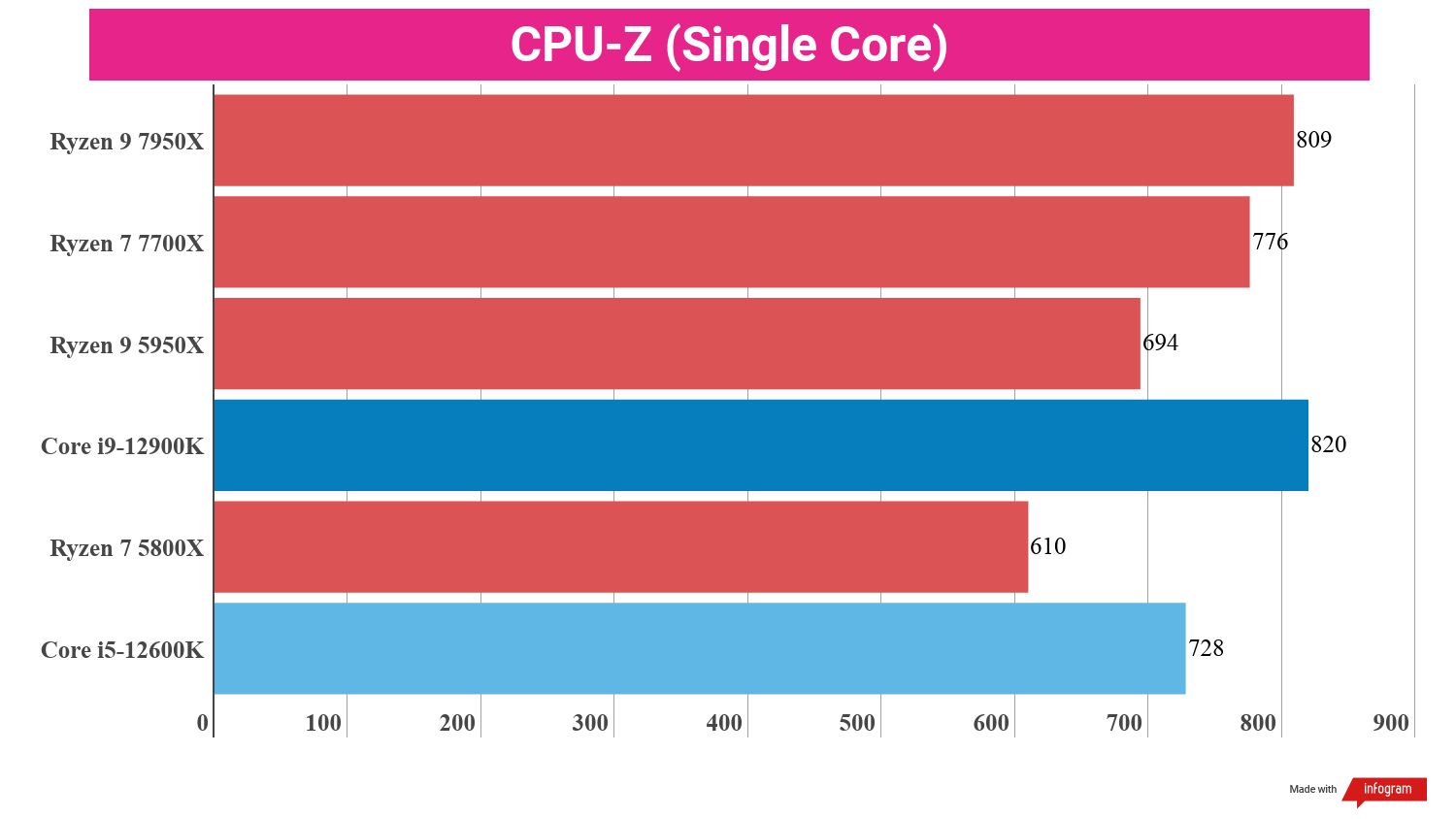
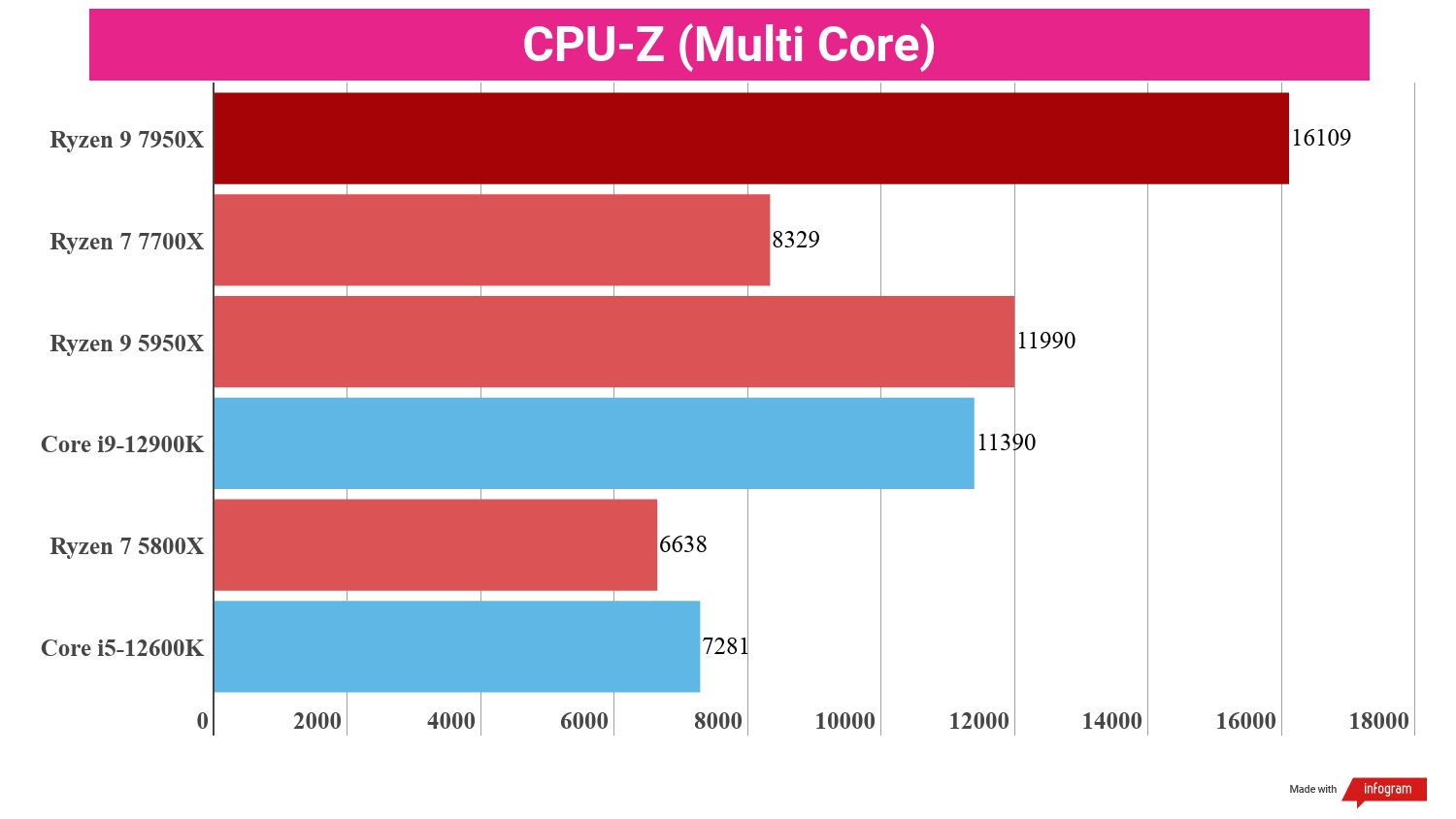
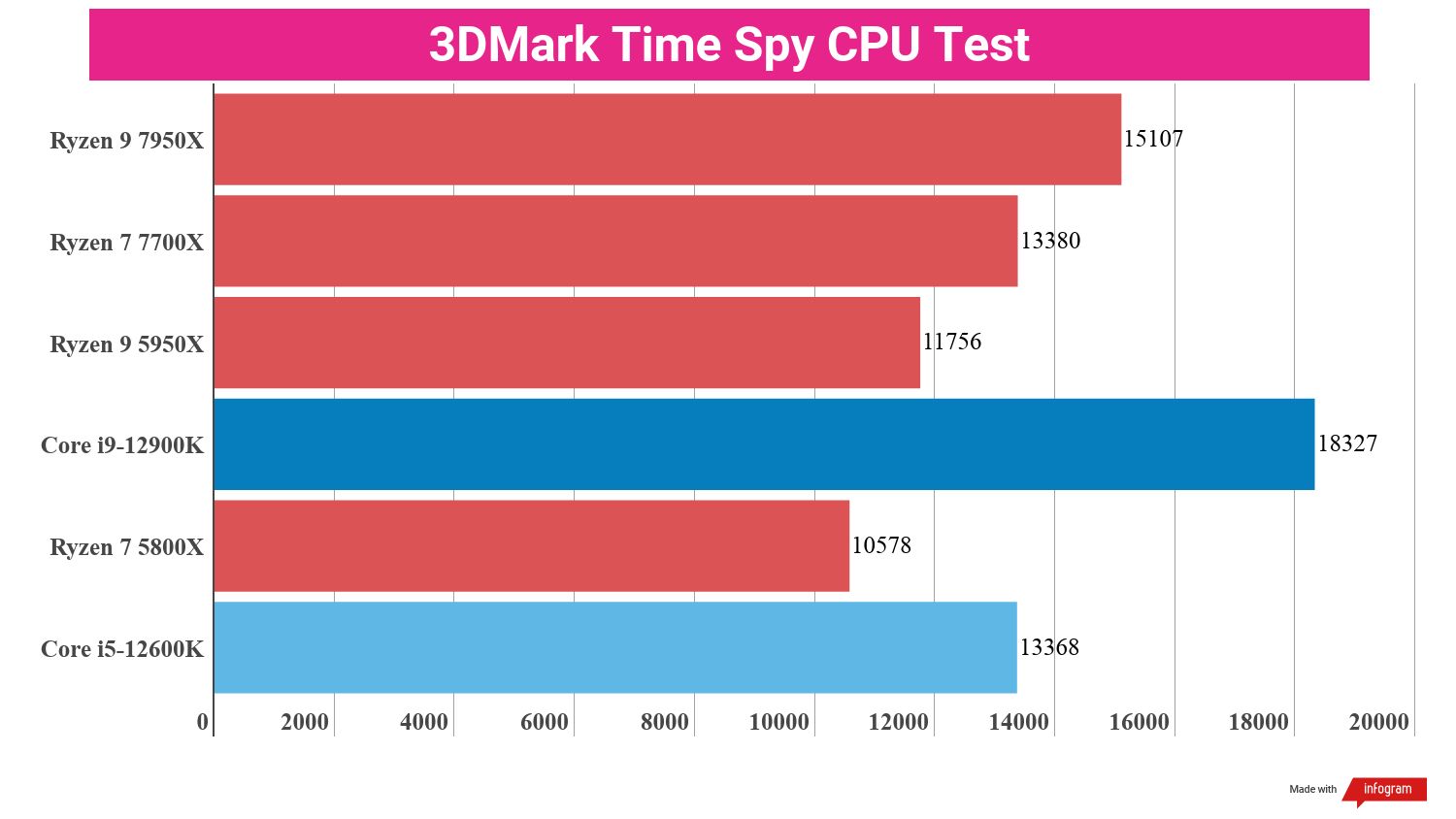
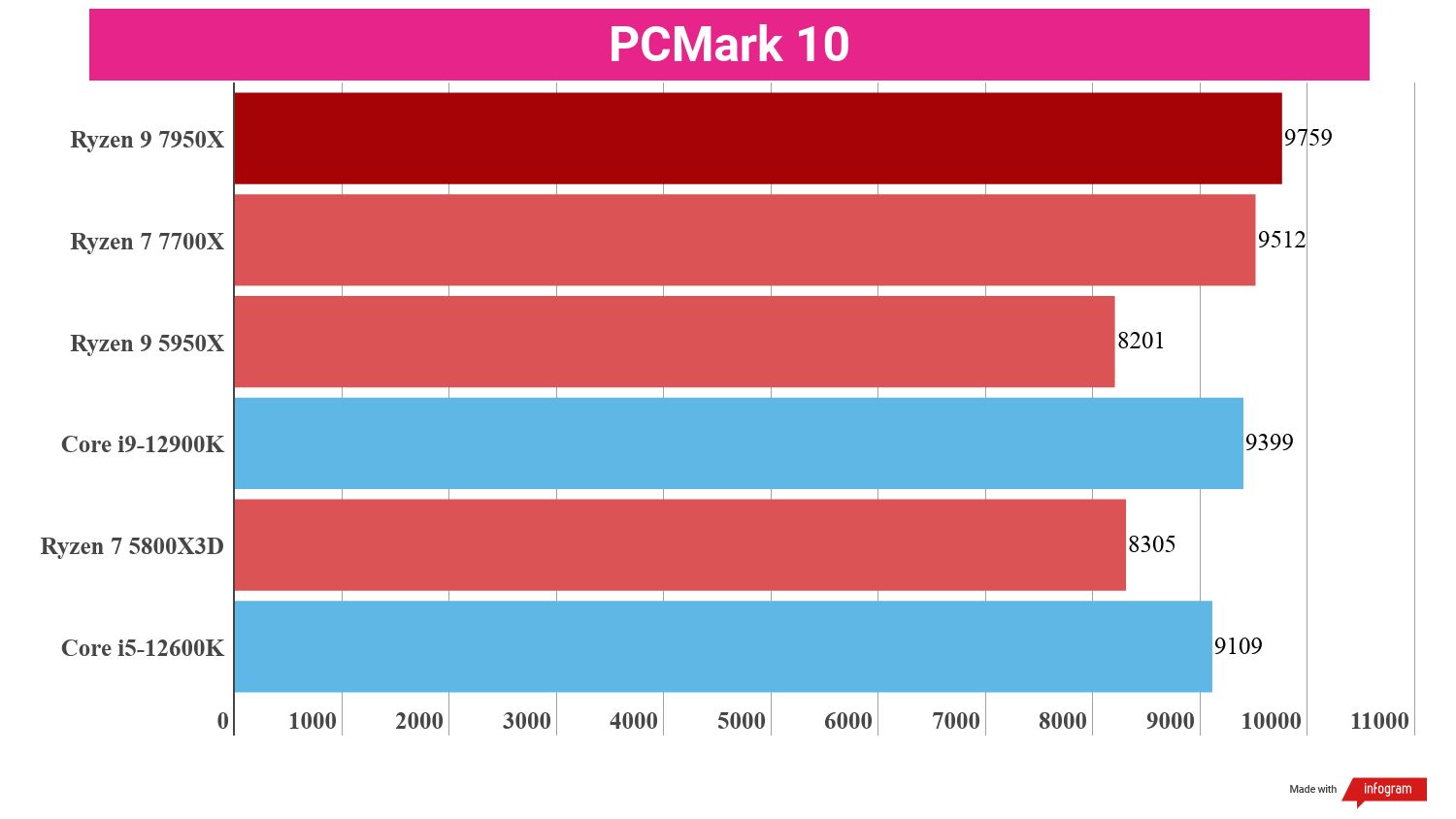
First, everything with the Ryzen 9 7950X begins with its single core performance – which tops the Core i9-12900K, 2,064 to 2,018, in CineBench R23 – and only gets better from there.
The Ryzen 9 7950X's CineBench R23 multi-core score was a jaw-dropping 38,531, a 52% increase over the Ryzen 9 5950X's score of 25,347. It's dominating performance continues with GeekBench 5, where the 7950X's single-core score of 2,241 was a 30.8% increase over the 5950X's score of 1,713. For the GeekBench 5 multi-core score, the Ryzen 9 7950X clocked in at 22,167 against the Ryzen 9 5950X's 13,975 – a staggering 60% increase.
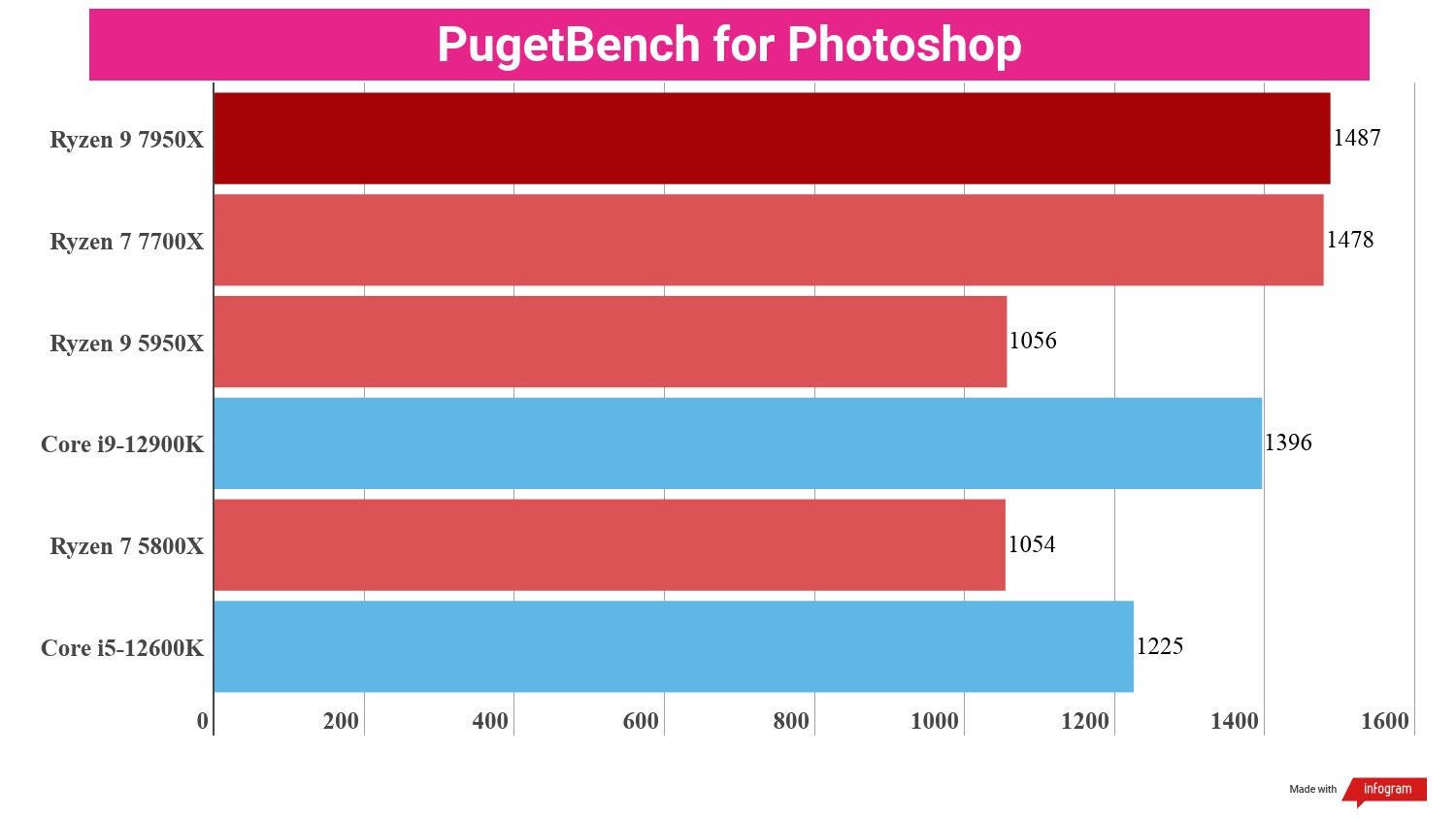
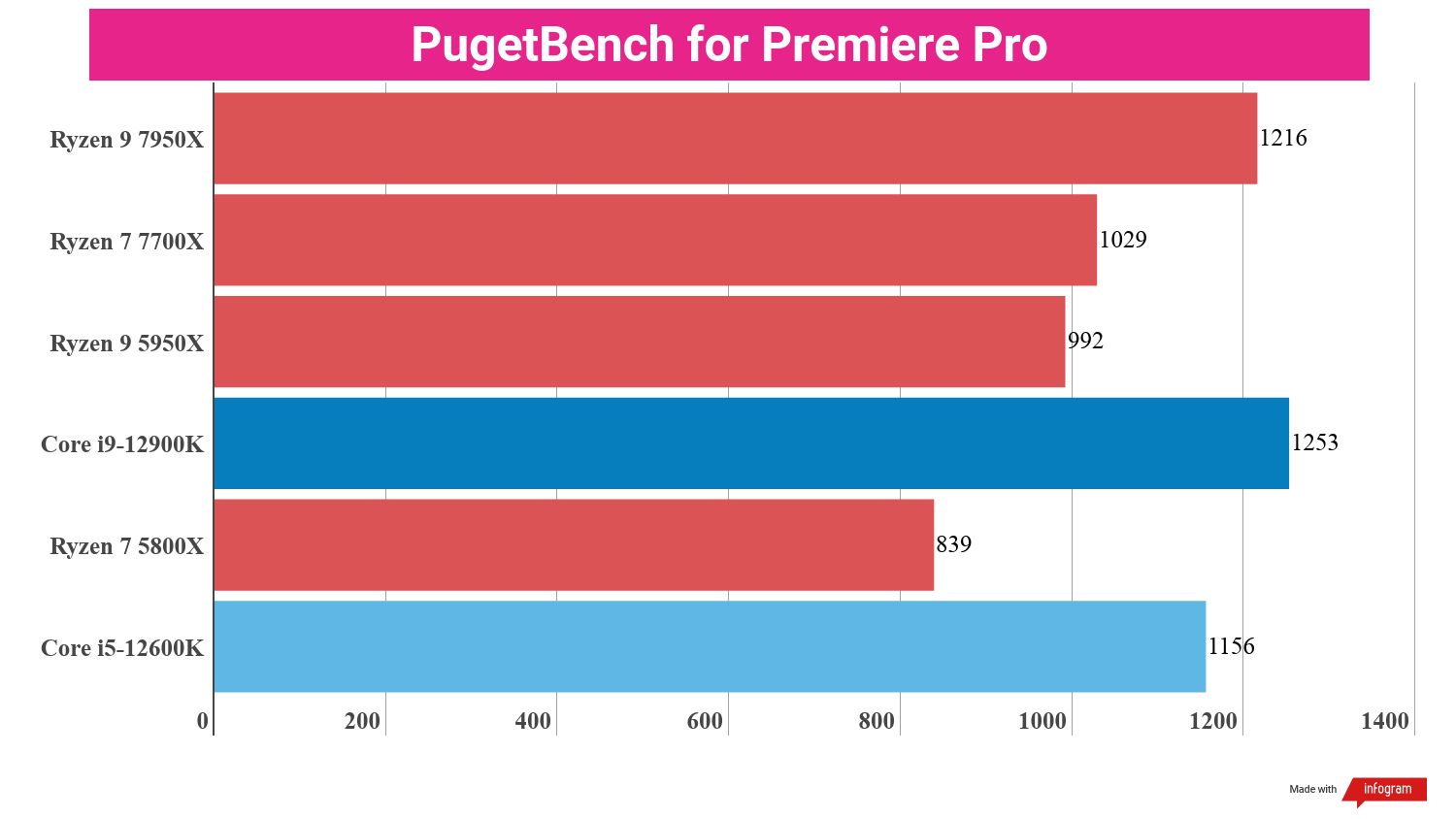
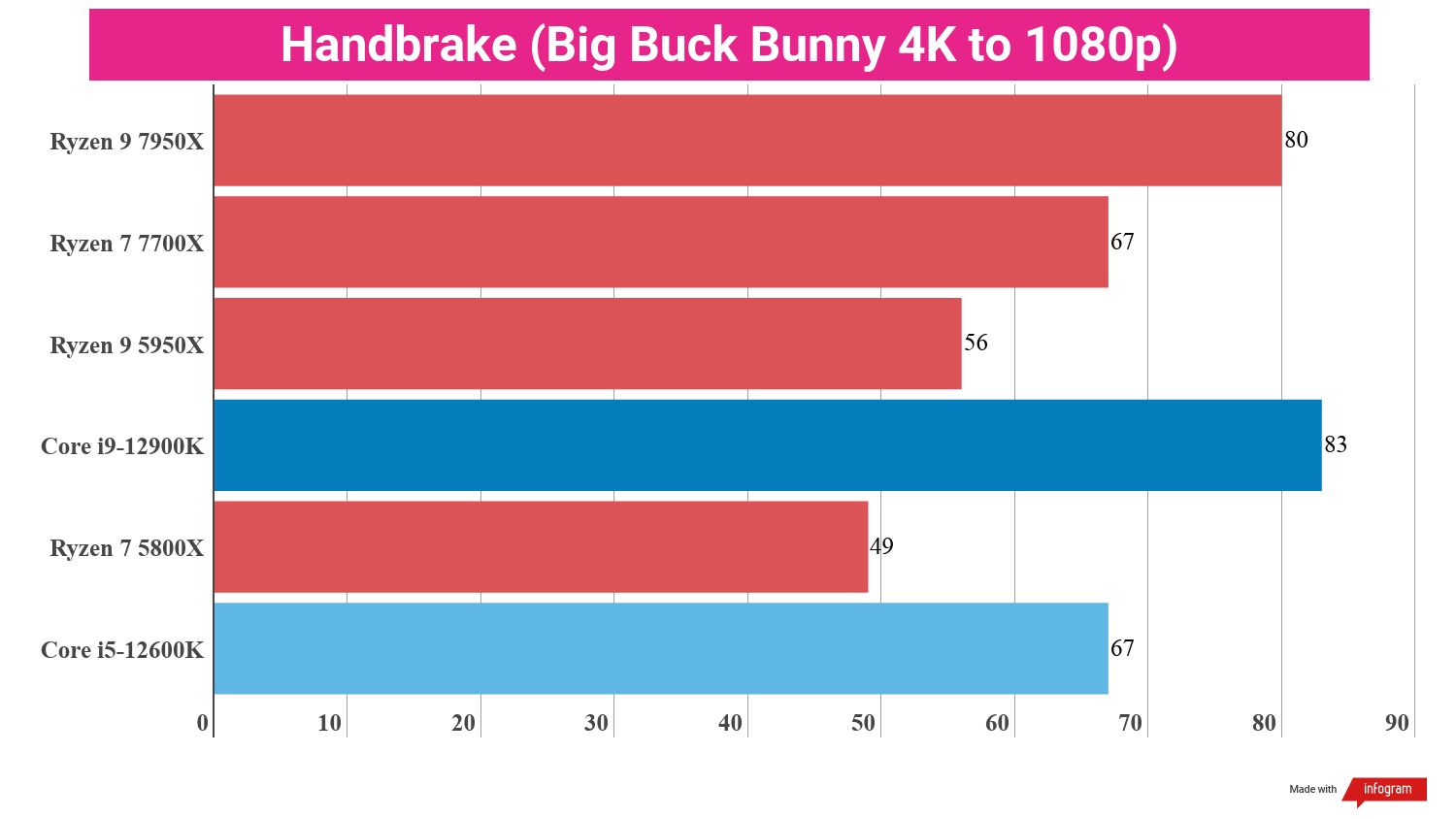
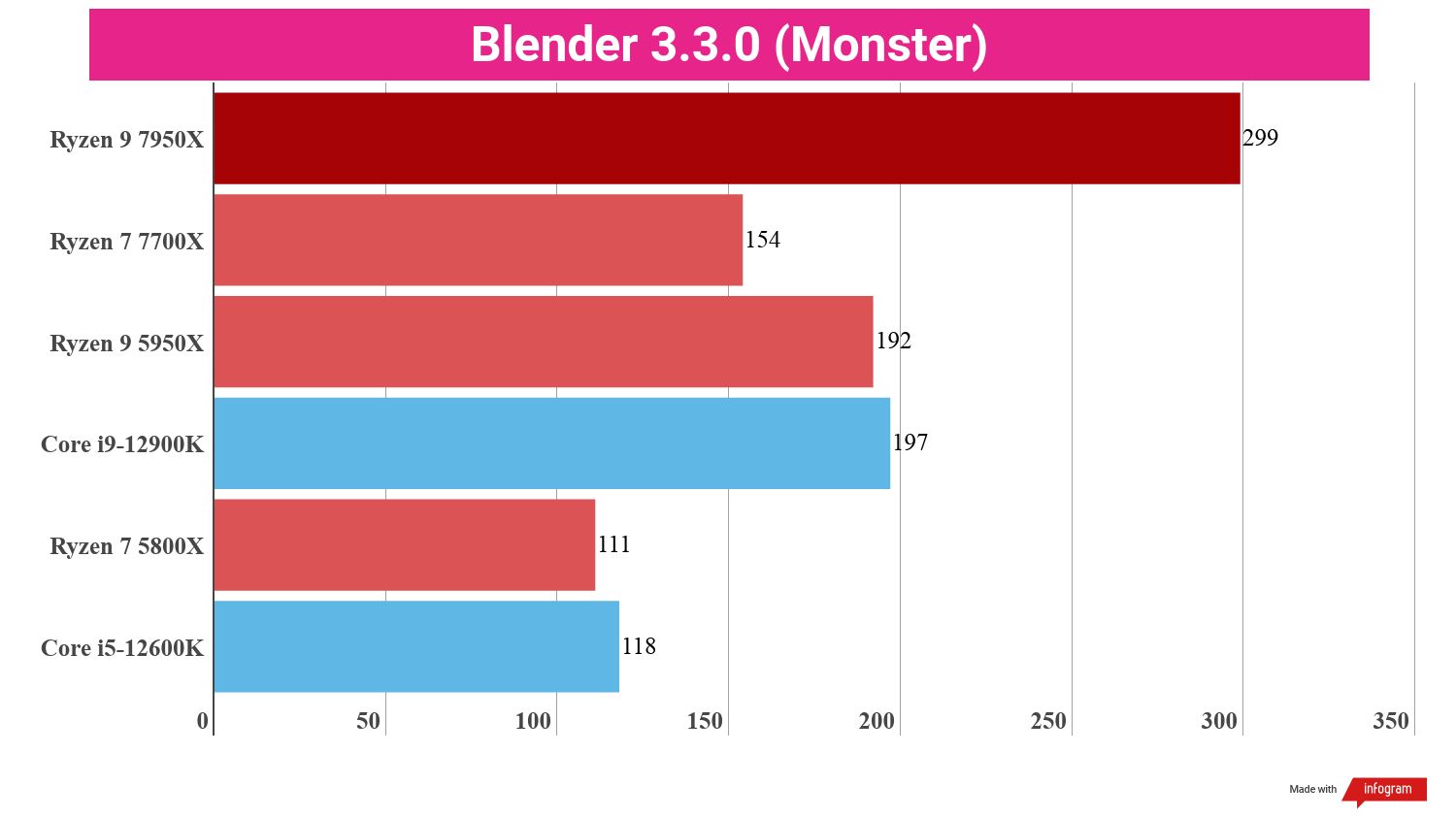
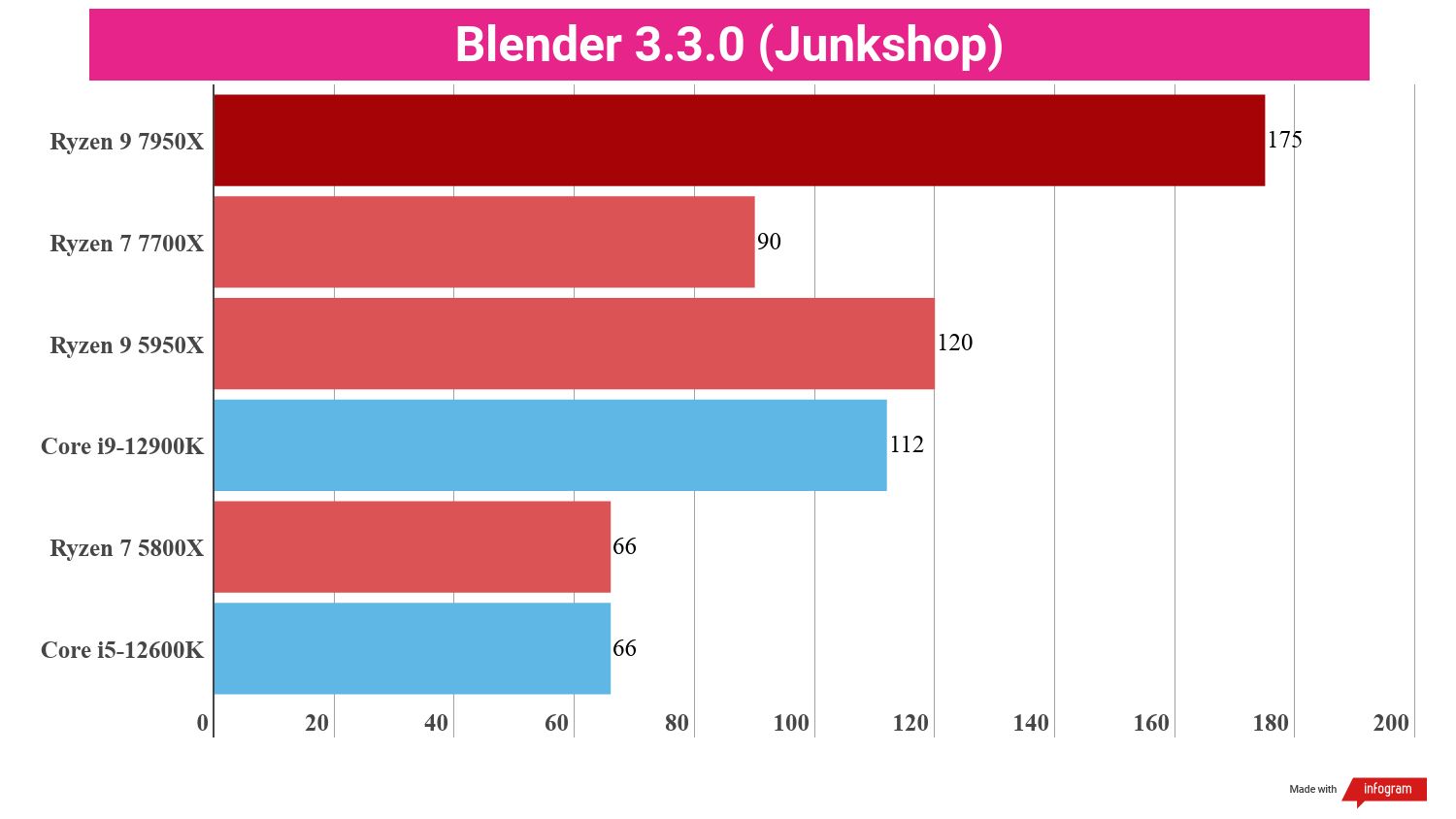
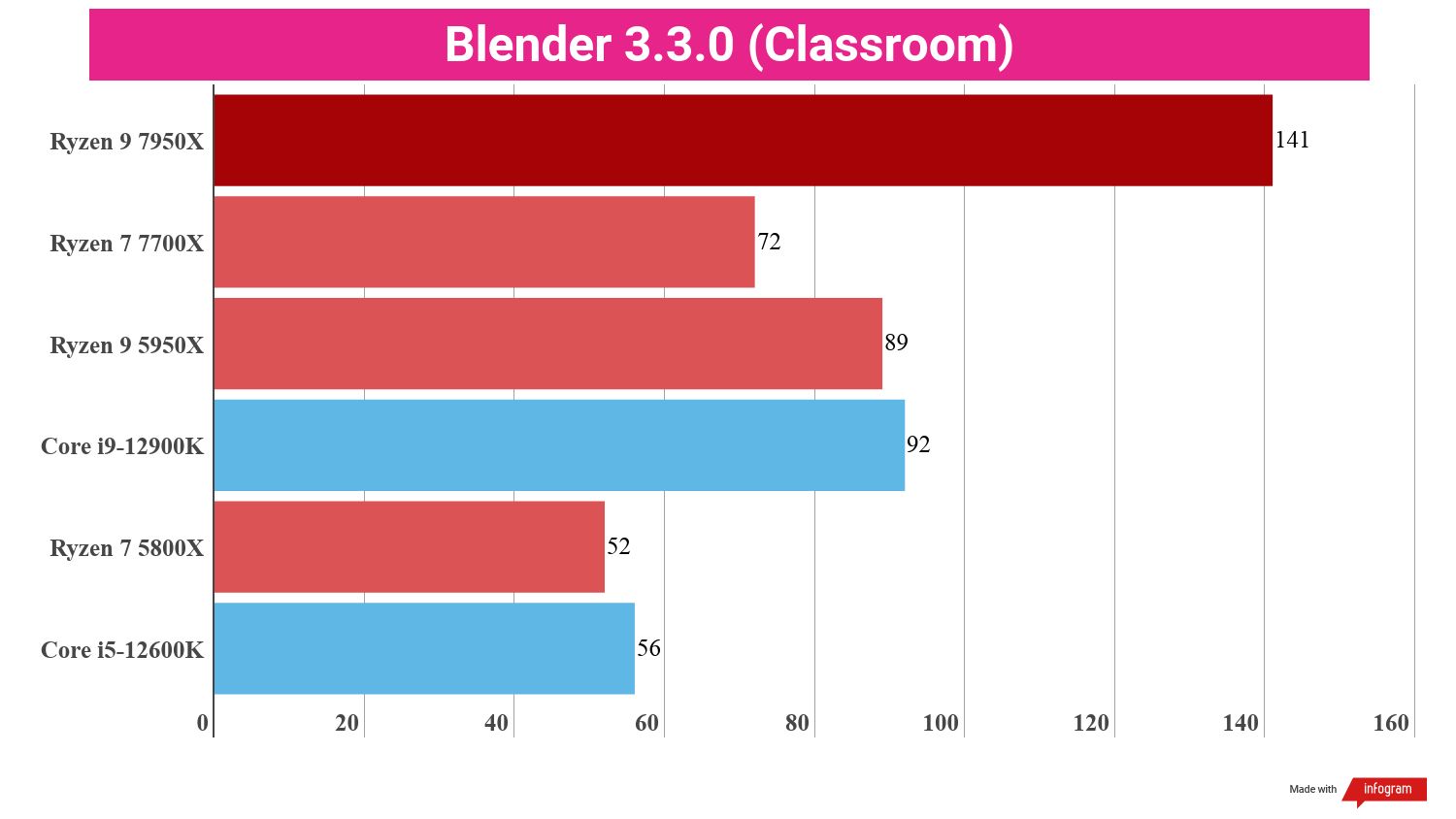
On the content creation side of things, the Ryzen 9 7950X outperforms the Ryzen 9 5950X by about 35% on average across our Adobe Photoshop, Adobe Premiere Pro, Handbrake, and Blender benchmarks.
It also beats out the i9-12900K by about 8.4% on average, which is very important given that the i9-12900K is widely see as the best processor for content creation on the market right now.
Most of the Ryzen 9 7950X's advantage comes from the Blender benchmark, which tests a processor's prowess at running the app's Cycles rendering workload. Cycles takes advantage of the aforementioned AVX-512 instruction set, and so it chews through the work about 53.3% faster on average than the Ryzen 9 5950X which does not incorporate the AVX-512 instruction set.
The Intel Core i9-12900K falls seriously behind the Ryzen 9 7950X in Blender as well, with the 7950X completing the rendering workloads about 54% faster on average. The i9-12900K does come out ahead slightly in video workloads like Adobe Premiere Pro and Handbrake, with the 7950X scoring a 1,216 in PugetBench for Premiere's benchmark against the i9-12900K's 1,253 – about 3% less than Intel's best.
Likewise on Handbrake, the Core i9-12900K processed 83 fps while encoding 4K to 1080p on the fast preset compared to the Ryzen 9 7950X's even 80 fps.
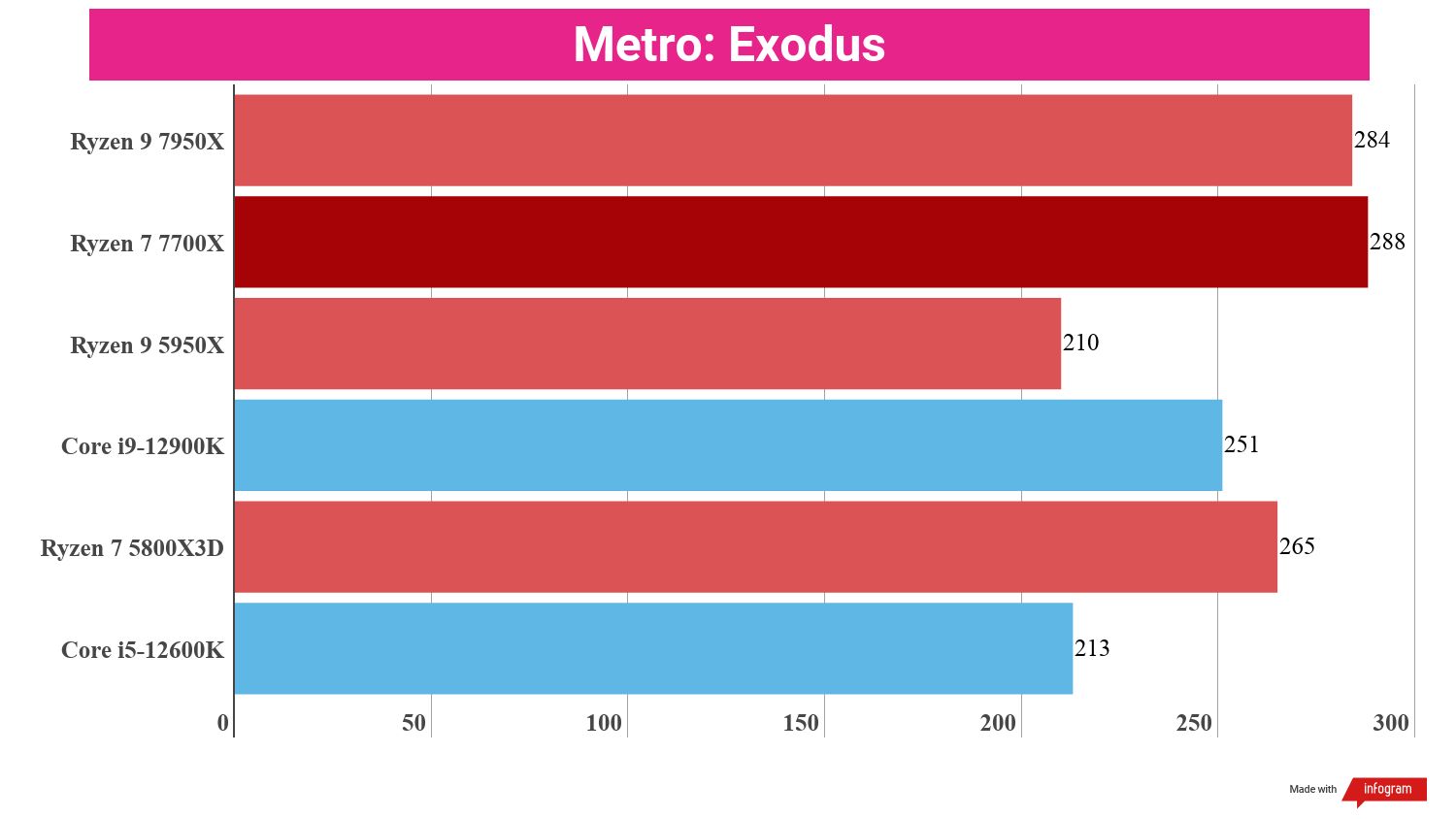
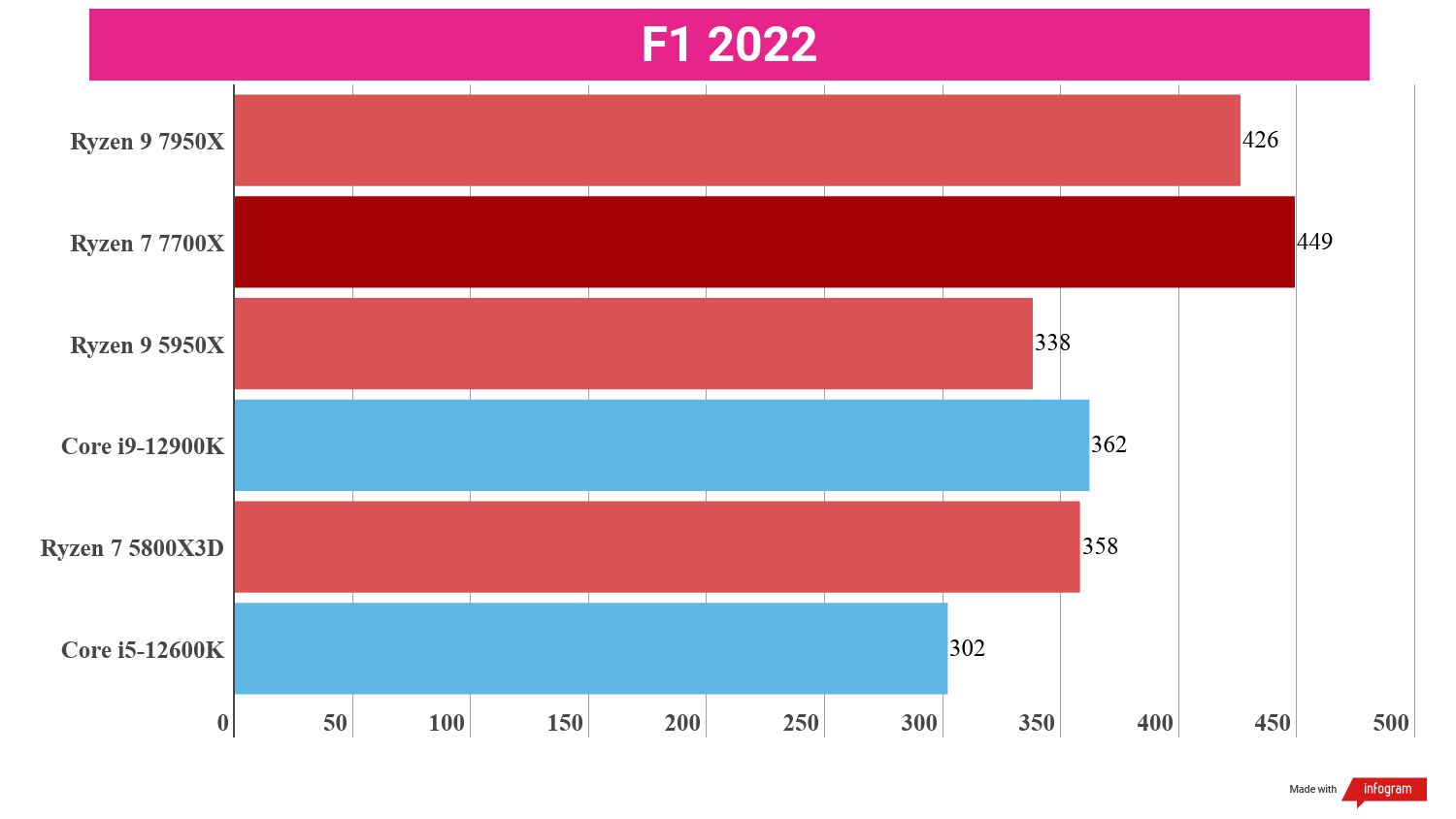
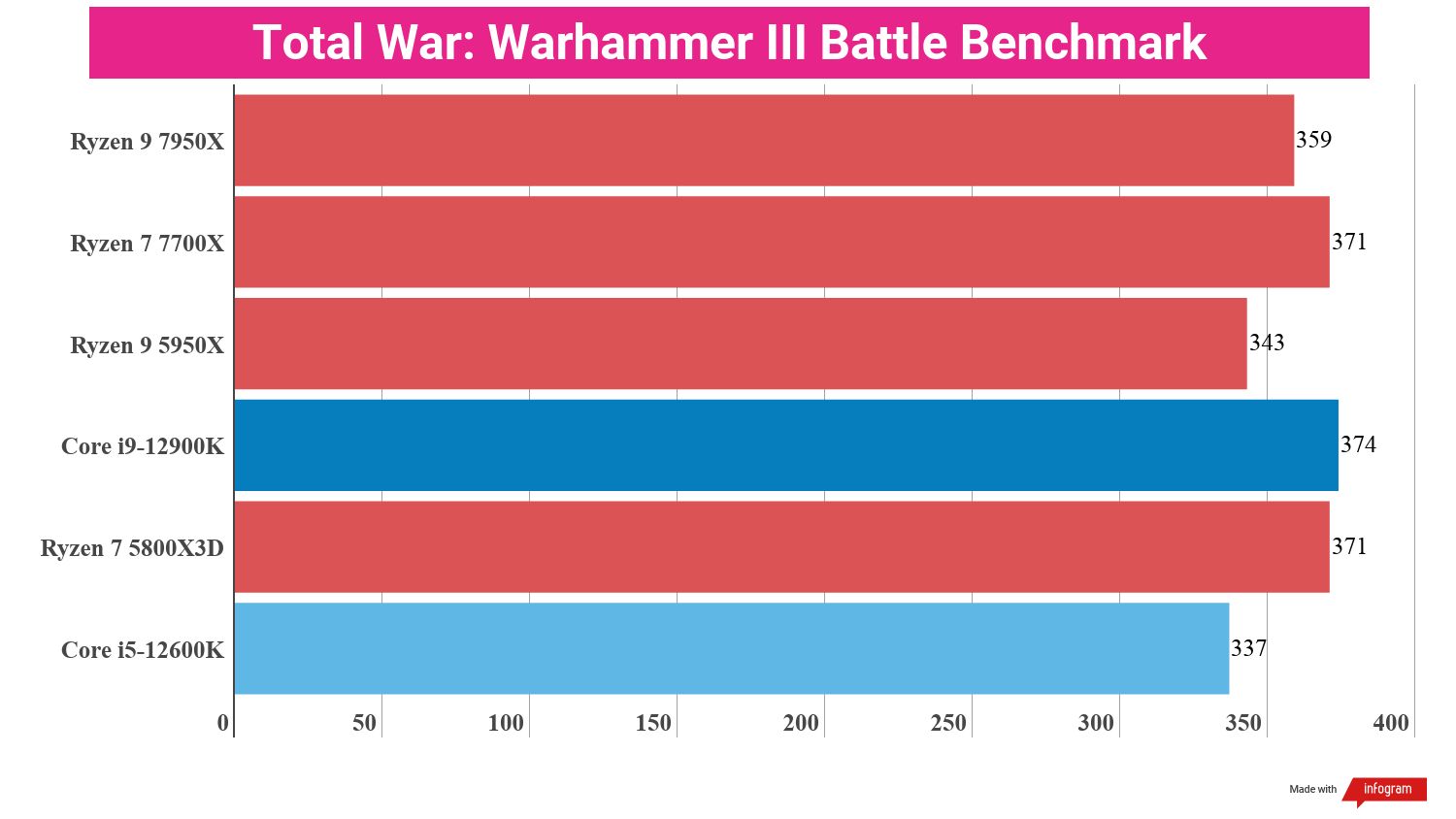
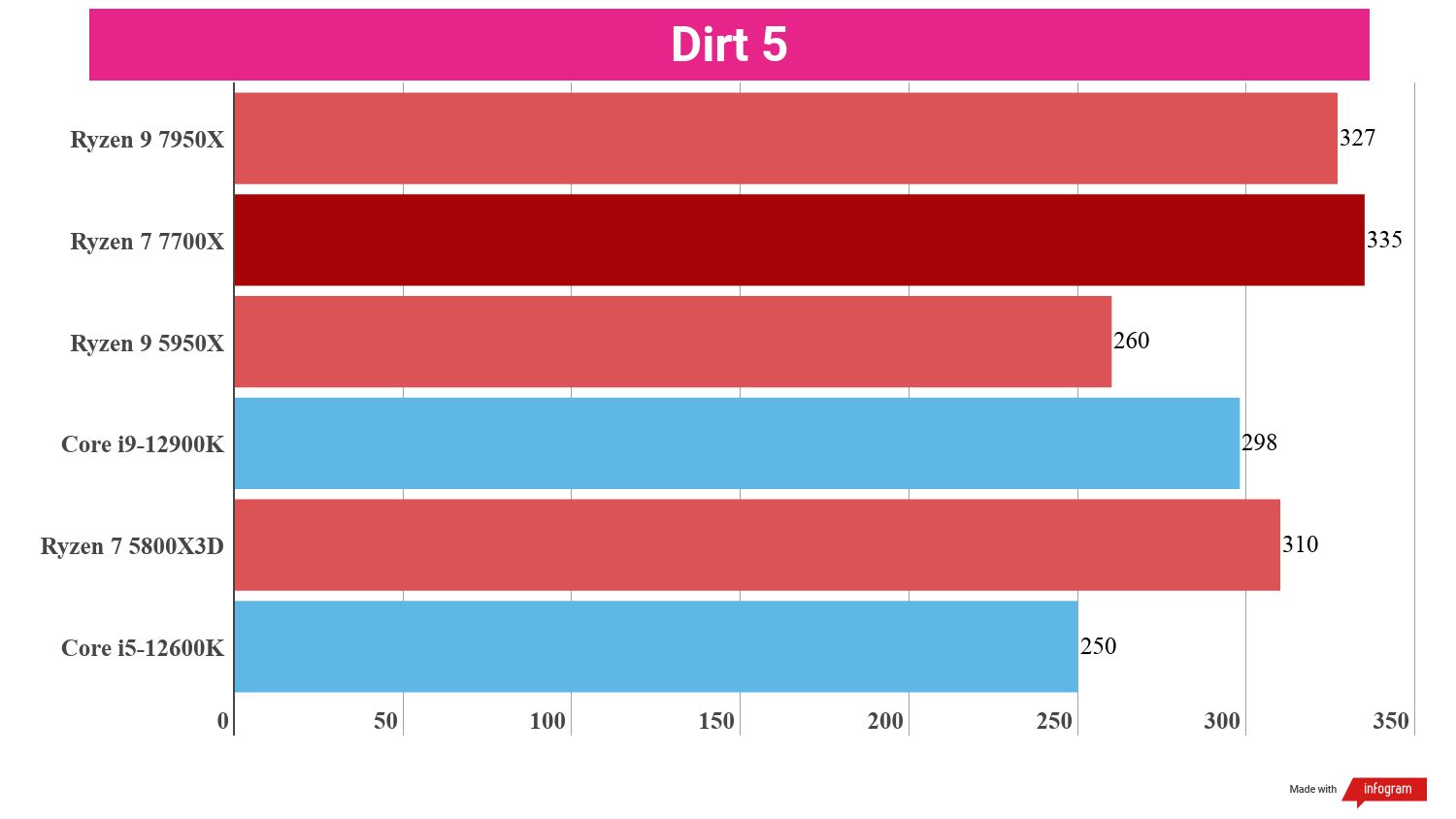
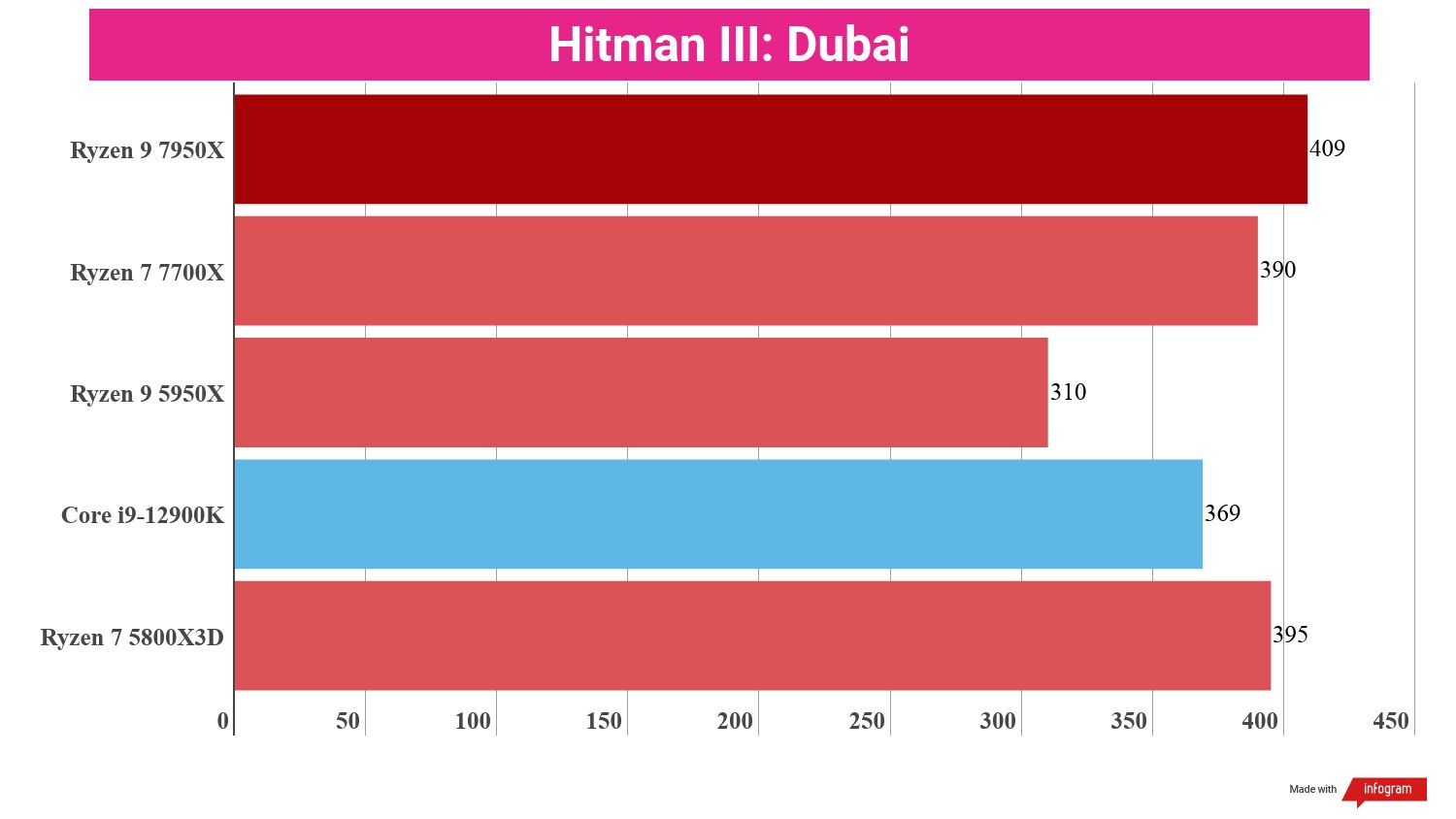
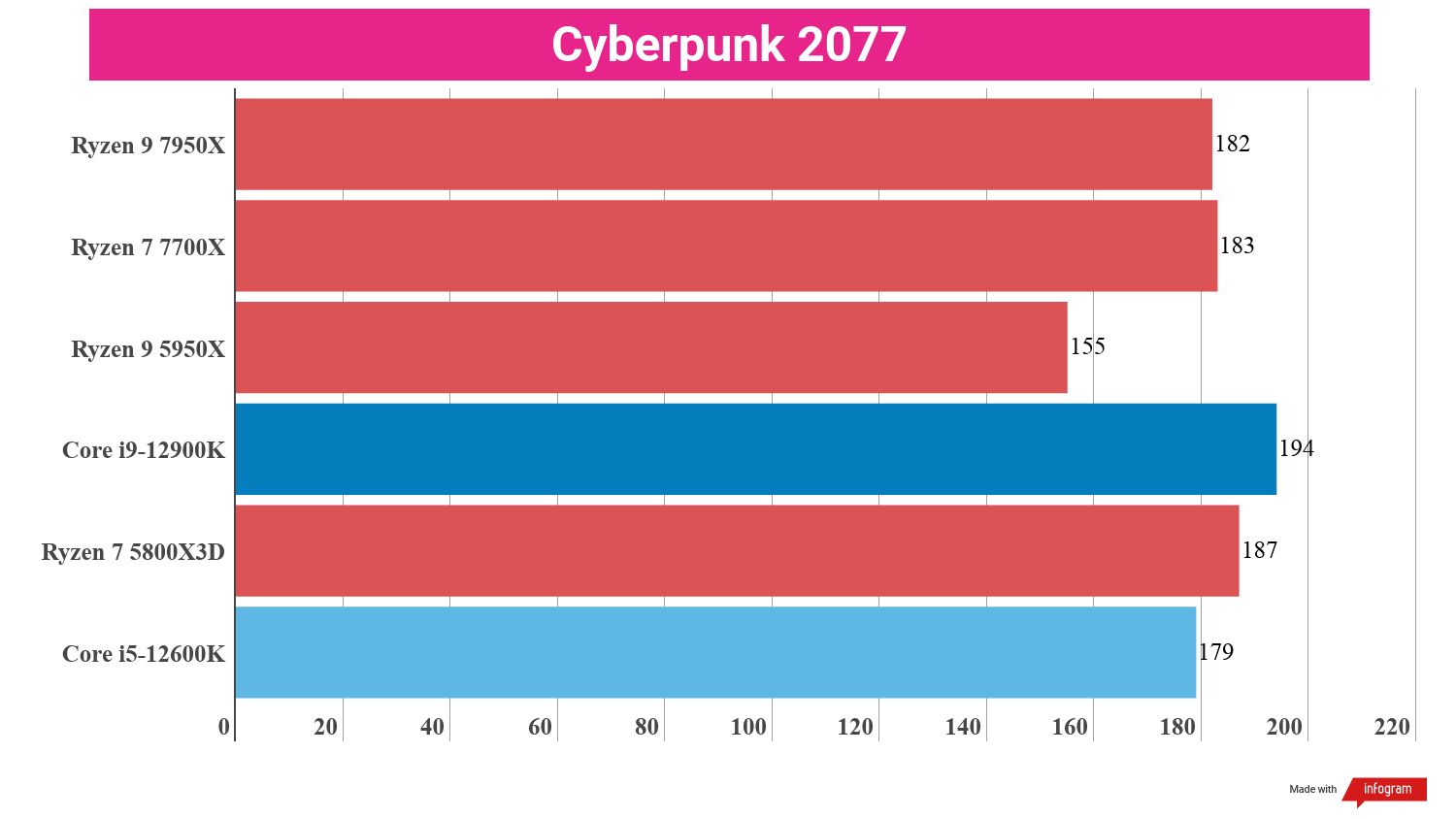
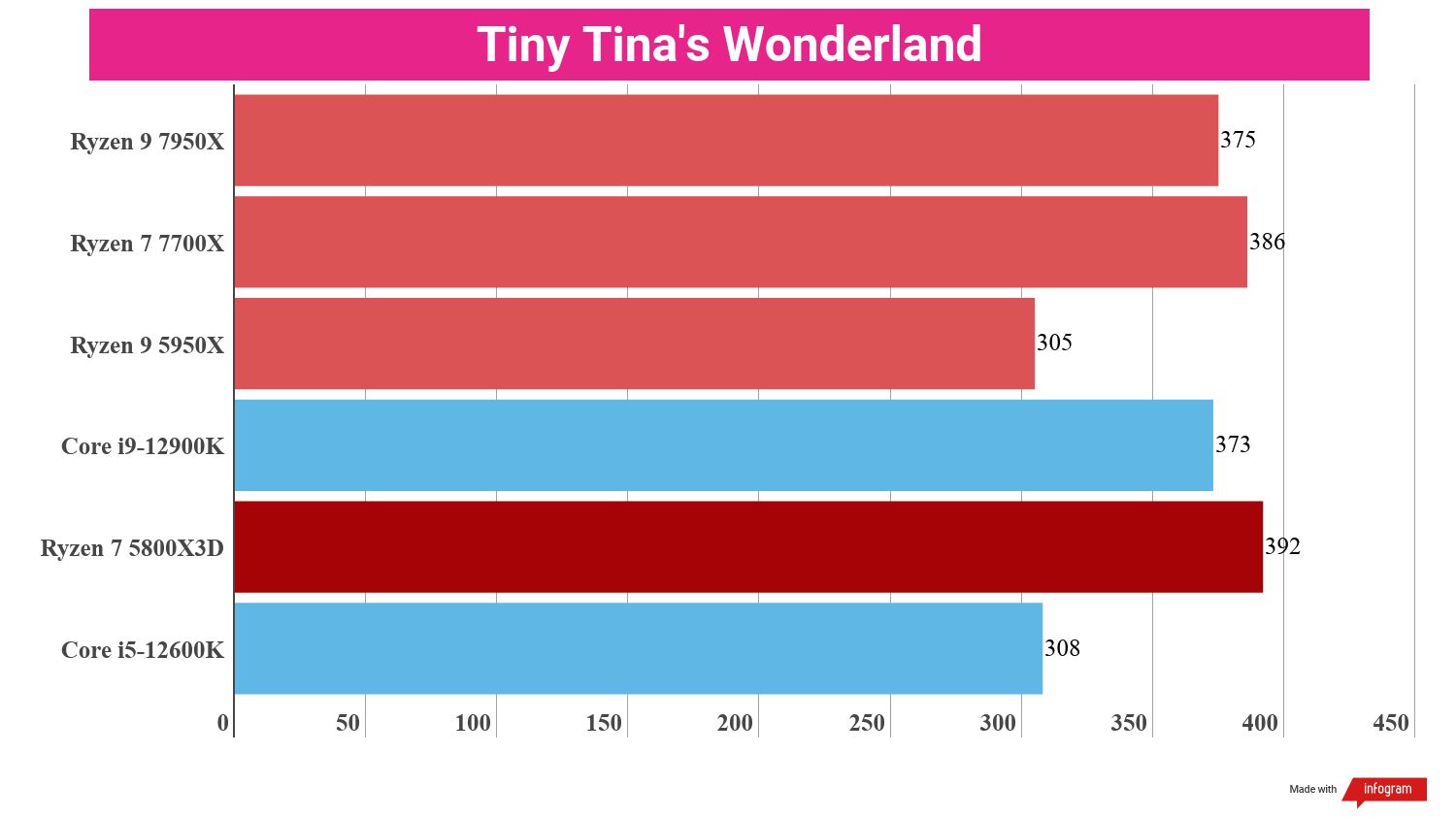
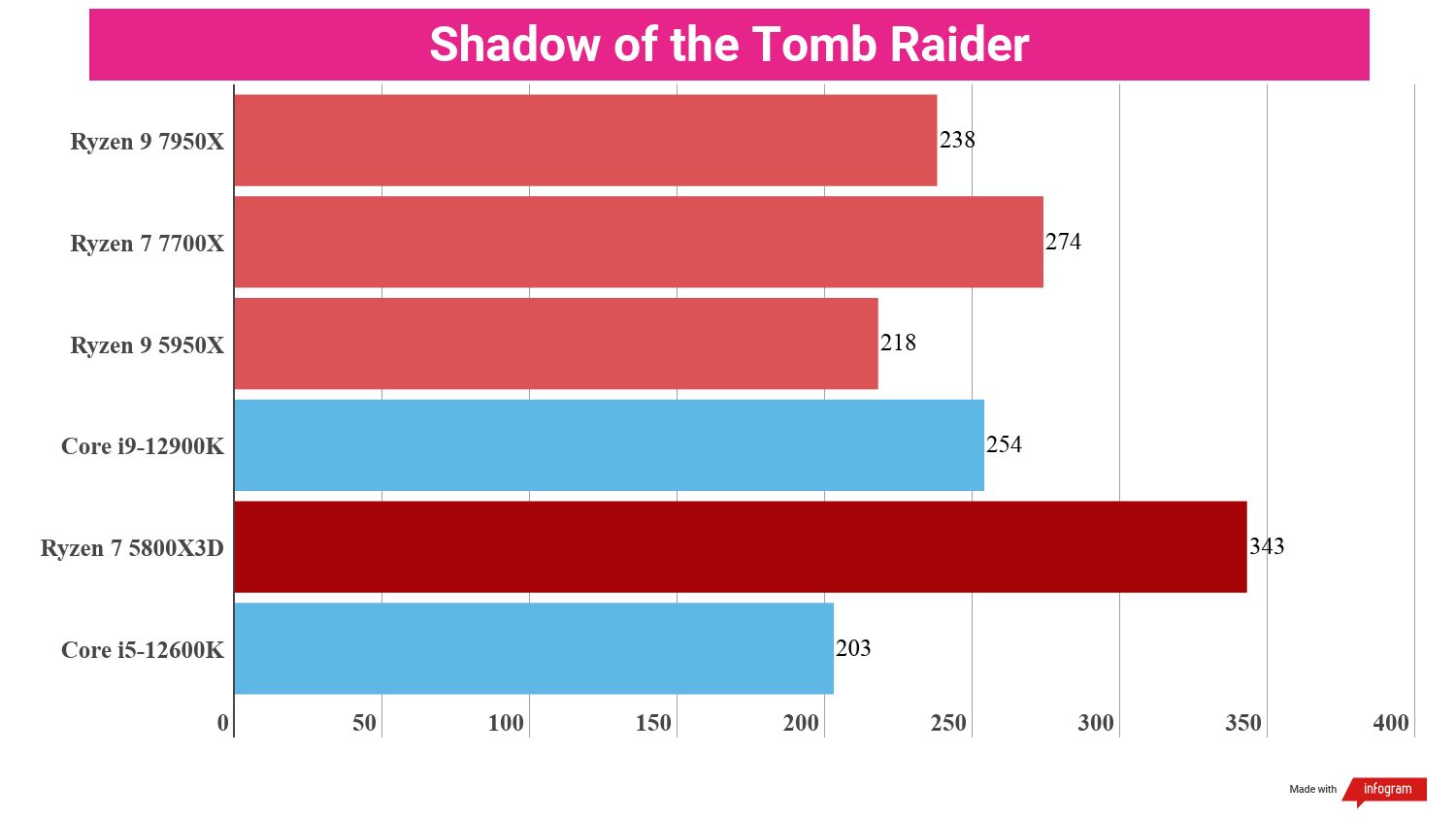
Finally, when it comes to gaming, the Ryzen 9 7950X isn't the best gaming CPU, but it's a close third behind the AMD Ryzen 7 7700X and AMD Ryzen 7 5800X3D. It's particular performance vis a vis the 7700X and the i9-12900K depends on the game, and there's no clear reason why, say, Cyberpunk 2077 plays better on an i9-12900K than a Ryzen 9 7950X, while the 7950X crushes the i9-12900K in Hitman 3, but averaging all the benchmark scores out, and the Ryzen 9 7950X's 325 fps is well within the margin of testing error against the 7700X's 335 average fps and the ryzen 7 5800X3D's 328 average fps.
As an absolute verdict, the 7950X falls just short of being the best gaming or content creating CPU, but with everything else it brings to the table, the AMD Ryzen 9 7950X is nothing short of the best consumer processor on Earth right now.
- Performance: 5/5
Should you buy the AMD Ryzen 9 7950X?
Buy it if...
You want the best AMD processor on the market
The AMD Ryzen 9 7950X is a massive generational leap over its Zen 3 predecessor.
You want to do a processor that does everything well
There is no area where this processor isn't either outperforming every other processor on the market by a lot or barely falling short within the margin of testing error.
You've got money to burn
Maybe that big tax refund came in or your parents carry landed hereditary titles, but whatever the reason, if you've got the money to splurge and you're looking for a reason, this is the processor (and accompanying hardware) you've been looking for
Don't buy it if...
You don't want to upgrade an entire PC
The AMD Ryzen 9 7950X needs an AM5 motherboard and DDR5 RAM, so unless you're upgrading from another Ryzen 7000-series chip and have all this hardware already, you're going to have to buy a LOT of hardware just to use this processor.
You're on a tight budget
While the AMD Ryzen 9 7950X is cheaper than its predecessor, it's still a premium flagship processor, so it's going to be a hefty investment.
Also Consider
AMD Ryzen 7 5800X3D
While the Ryzen 7 5800X3D might be "last-gen", its 3D-VCache technology makes it the best gaming processor for the AM4 platform, so if you're looking for a cheaper upgrade, you can get it for much cheaper than the Ryzen 9 7950X.
Read more: AMD Ryzen 7 5800X3D review
AMD Ryzen 7 7700X
The AMD Ryzen 7 7700X isn't as powerful as the 7950X, but it's no slouch, and it provides an excellent performance-to-price proposition for someone who is a bit more value conscious.
Read more: AMD Ryzen 7 7700X review
Intel Core i9-12900K
If you're looking for the best processor for content creation, you're going to be hard pressed to find better than the Core i9-12900K. It's expensive, sure, but this is the processor you're going to want for video editing, rendering, and the like.
Read more: Intel Core i9-12900K review
AMD Ryzen 9 7950X Final Report Card
| Value | While cheaper than the AMD Ryzen 9 5950X it is replacing, you are going to need to buy a lot of new hardware to use this chip, adding to the expense. For the performance you're getting, though, it's worth the extra expense. | 4 / 5 |
| Features | Now with PCIe 5.0, DDR5 RAM, and a 5nm process, this is the upgrade Ryzen chips have been needing desperately since the release of Intel Alder Lake. | 5 / 5 |
| Performance | While it might win every single category outright, the ryzen 9 7950X brings incredible performance across the board regardless while absolutely running away with the crown elsewhere. | 5 / 5 |
| Final score (average) | The AMD Ryzen 9 7950X's combination of phenomenal performance, DDR5 and PCIe 5.0 compatibility, and an excellent price makes this the best processor in the world right now. | 4.67 / 5 |
- First reviewed September 2022
How we test processors
When it comes to processors, we look at four key metrics: synthetic single and multi-core performance, "general" performance, creative performance, and gaming performance.
- Synthetic single and multi-core benchmarks test the performance of specific instruction sets and processor operations like floating-point calculations using benchmark tools like GeekBench, Cinebench, and CPU-Z.
- General performance is how the processor performs during typical use conditions using PCMark 10.
- Creative performance is a measure of how well the processor performs in several popular creative workloads like Handbrake, Blender, and Adobe Photoshop. Where possible, we explicitly disable GPU accelerated operations or test rendering using the CPU by itself.
- Gaming performance measures how well the processor calculates gaming operations like in-game physics by running several games' integrated benchmark tools like CyberPunk 2077, Metro: Exodus, and F1 2022. In all cases, we run the benchmarks on the lowest graphics settings available at 1080p and using the most powerful graphics card we have available and with 32GB RAM to isolate the actual CPU operations we are testing without having to worry about inteference with excessive memory or graphics management.
Once this is done, we average the scores across each category for a final report card broken down by use case, and then we finally divide these scores by the processor's MSRP to measure its performance-for-price to determine how good of a overall value the processor is for the average consumer.

John (He/Him) is the Components Editor here at TechRadar and he is also a programmer, gamer, activist, and Brooklyn College alum currently living in Brooklyn, NY.
Named by the CTA as a CES 2020 Media Trailblazer for his science and technology reporting, John specializes in all areas of computer science, including industry news, hardware reviews, PC gaming, as well as general science writing and the social impact of the tech industry.
You can find him online on Bluesky @johnloeffler.bsky.social
